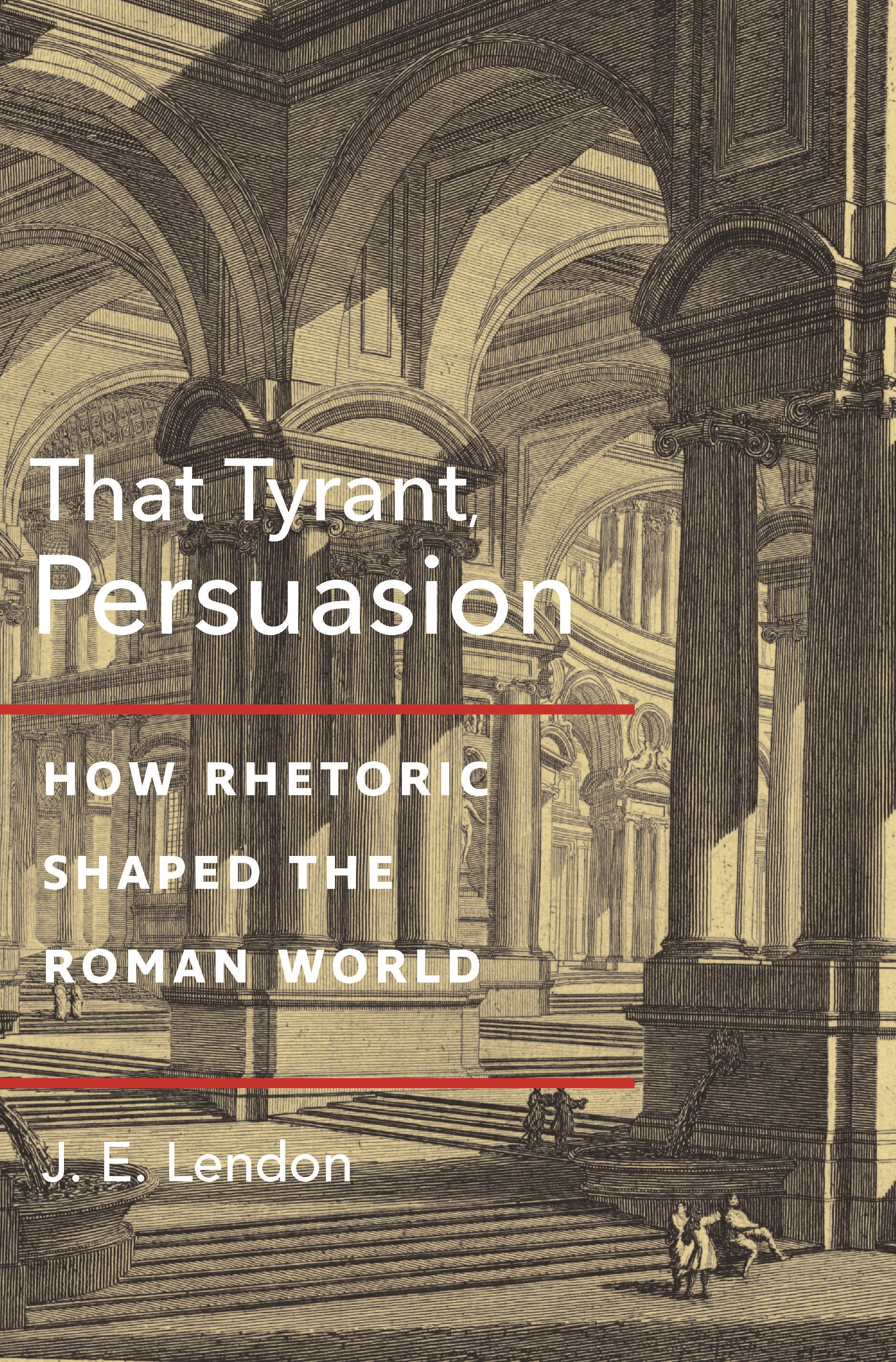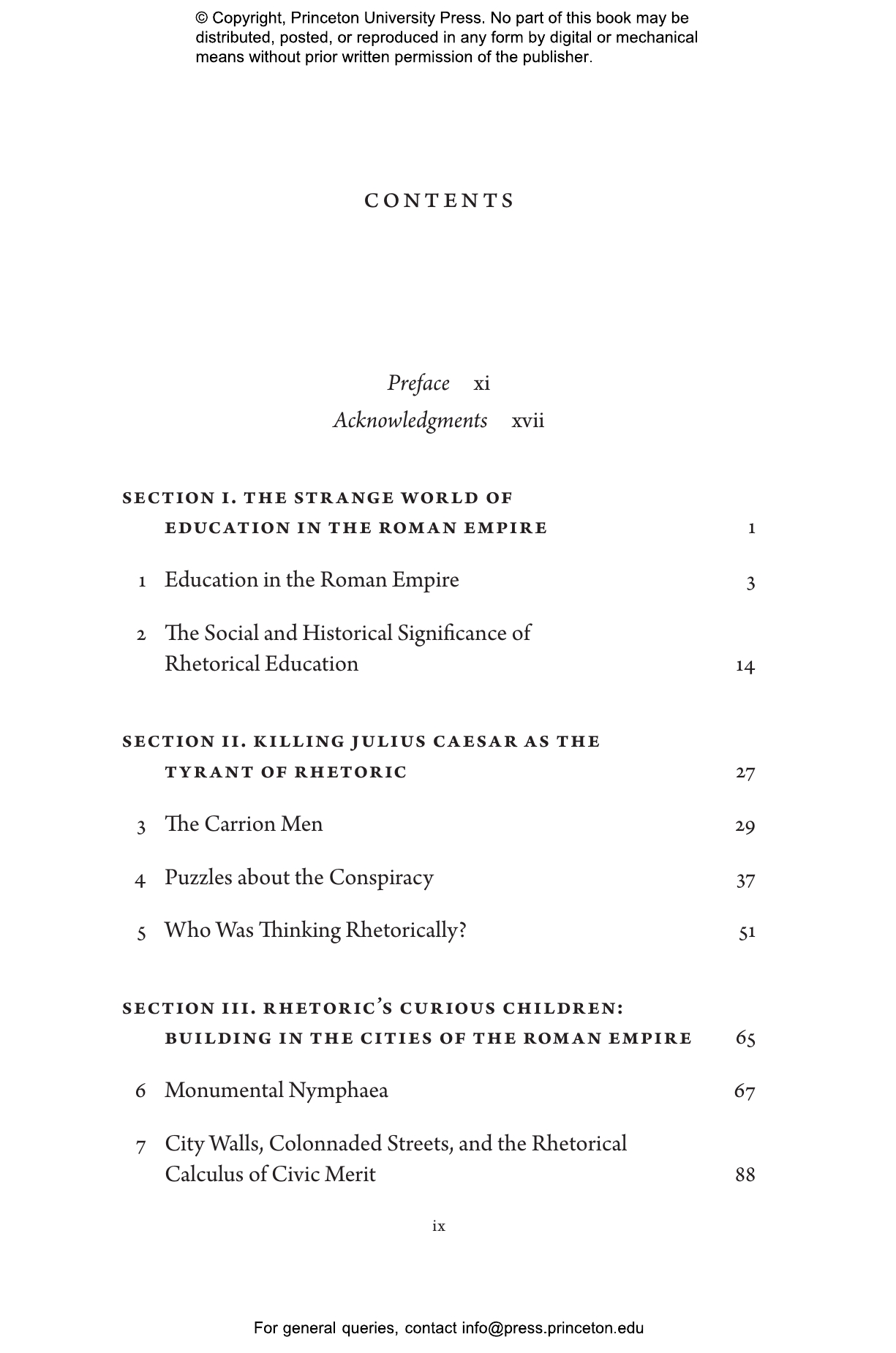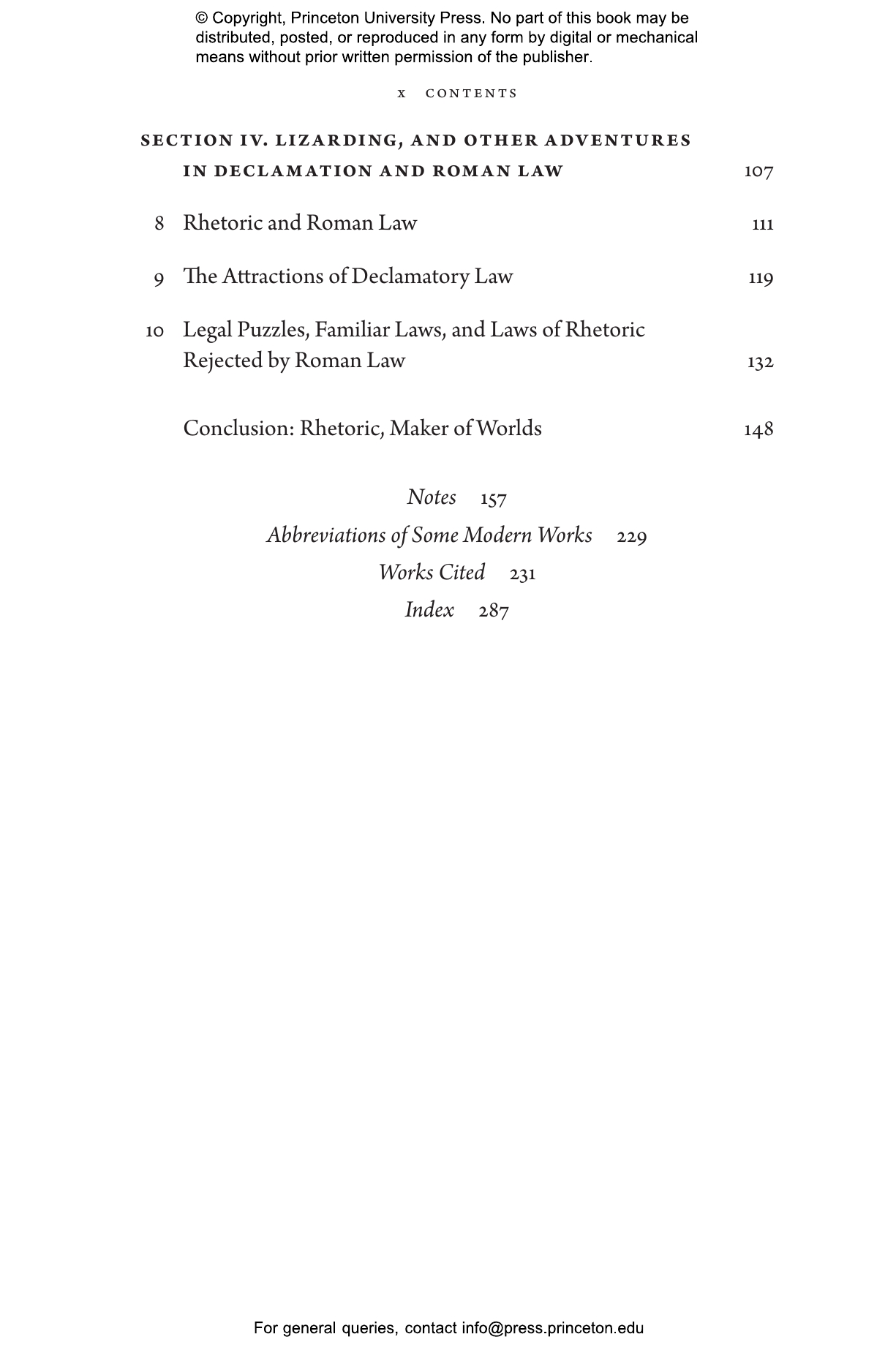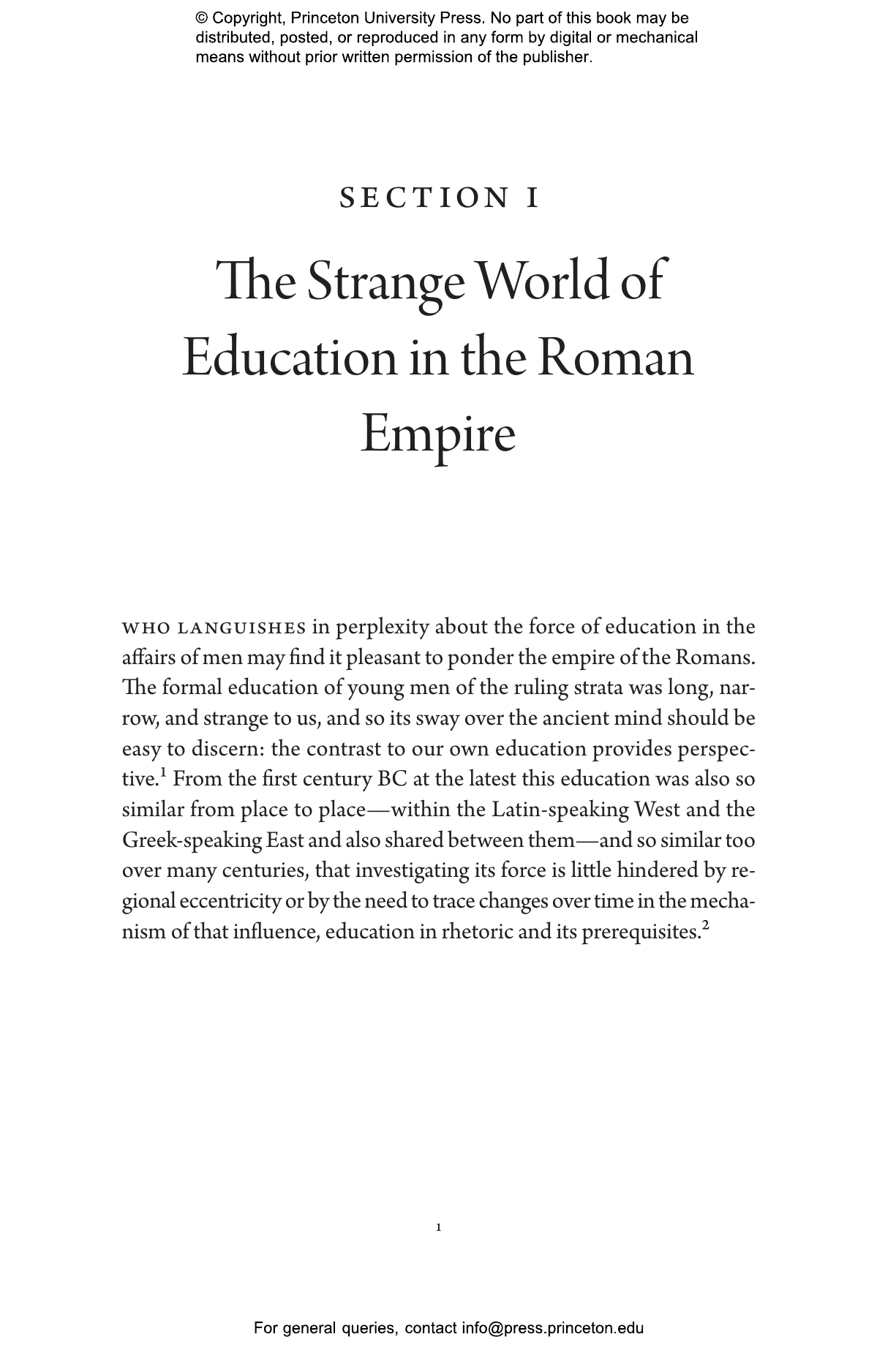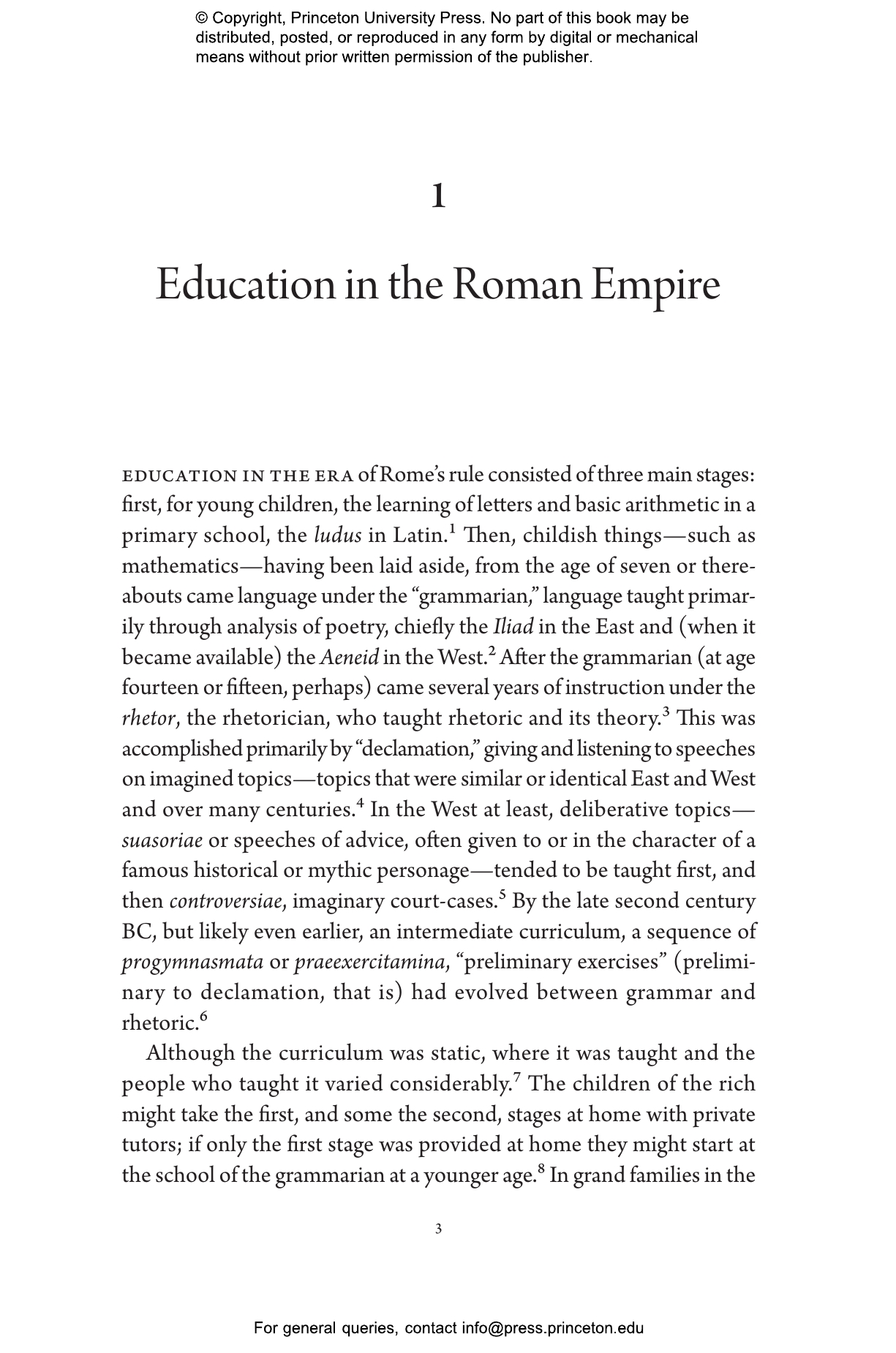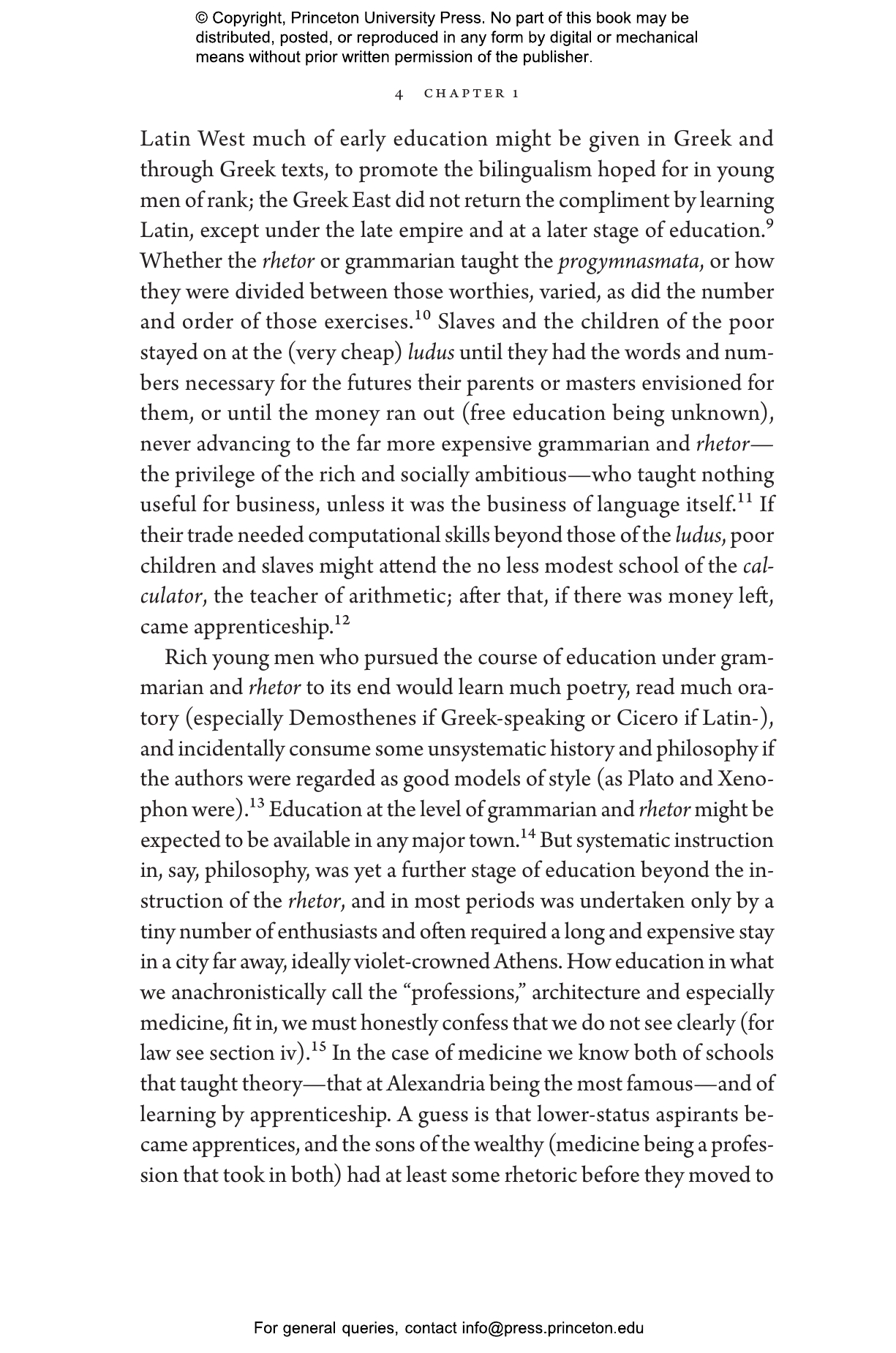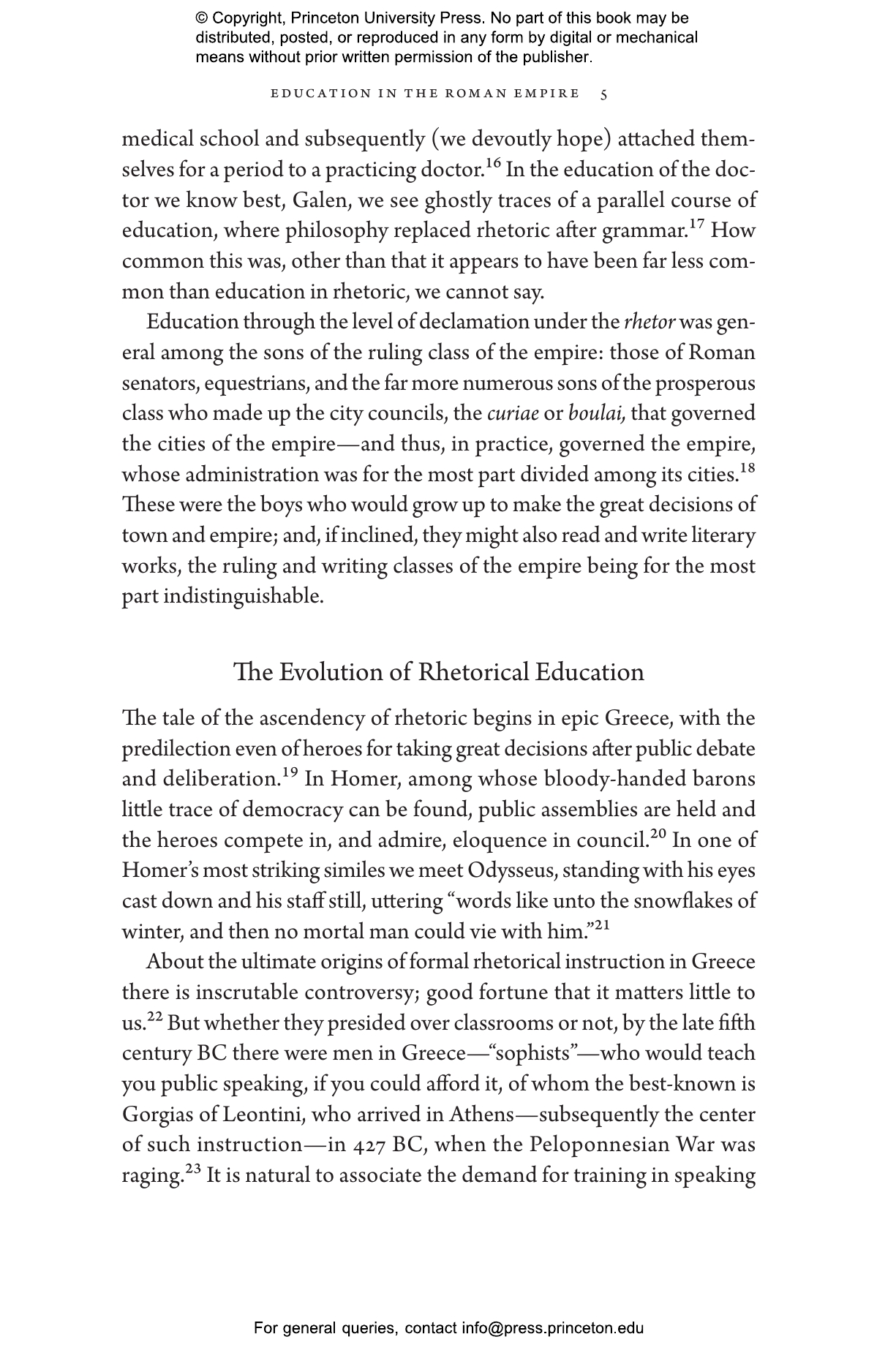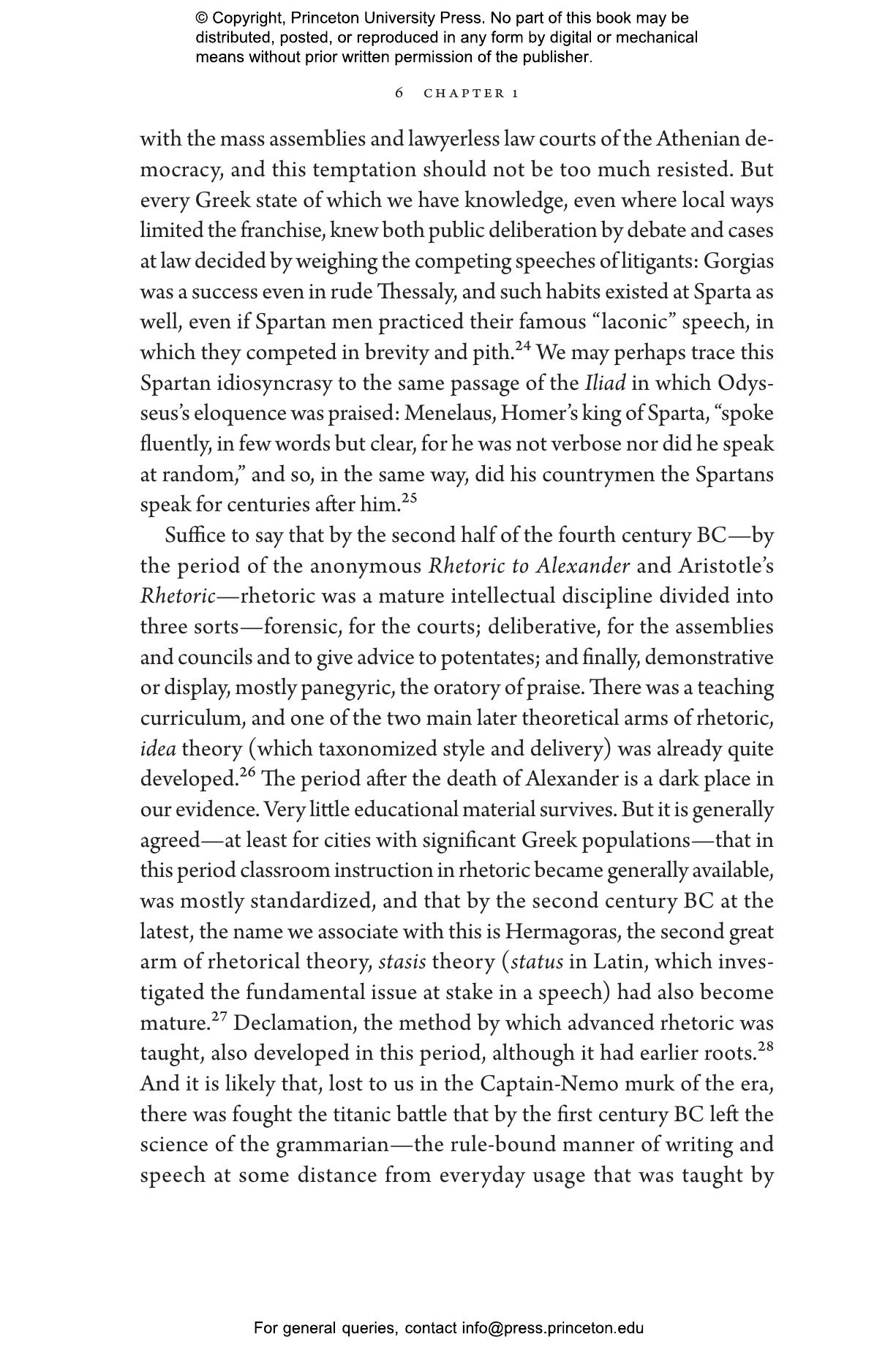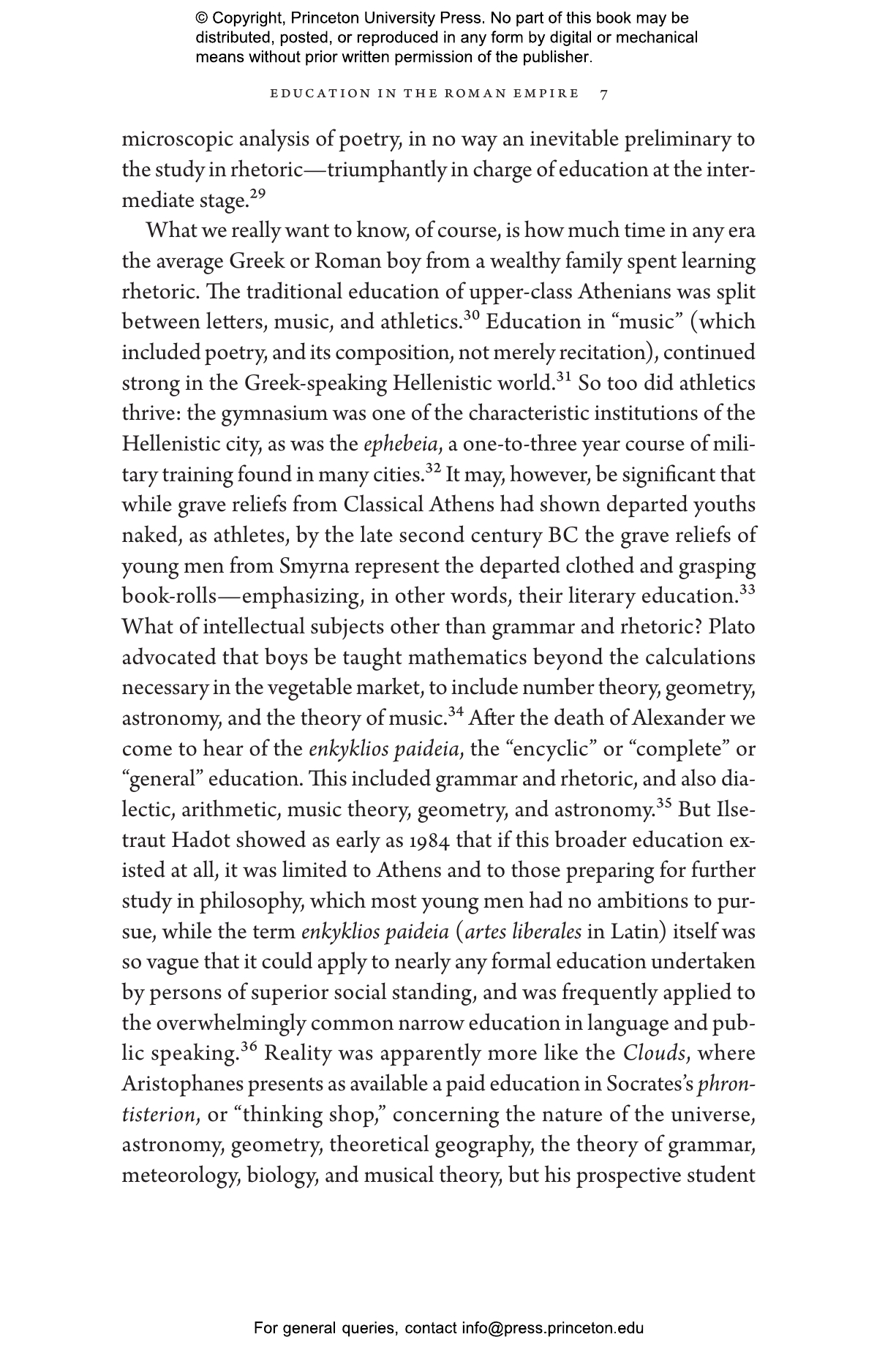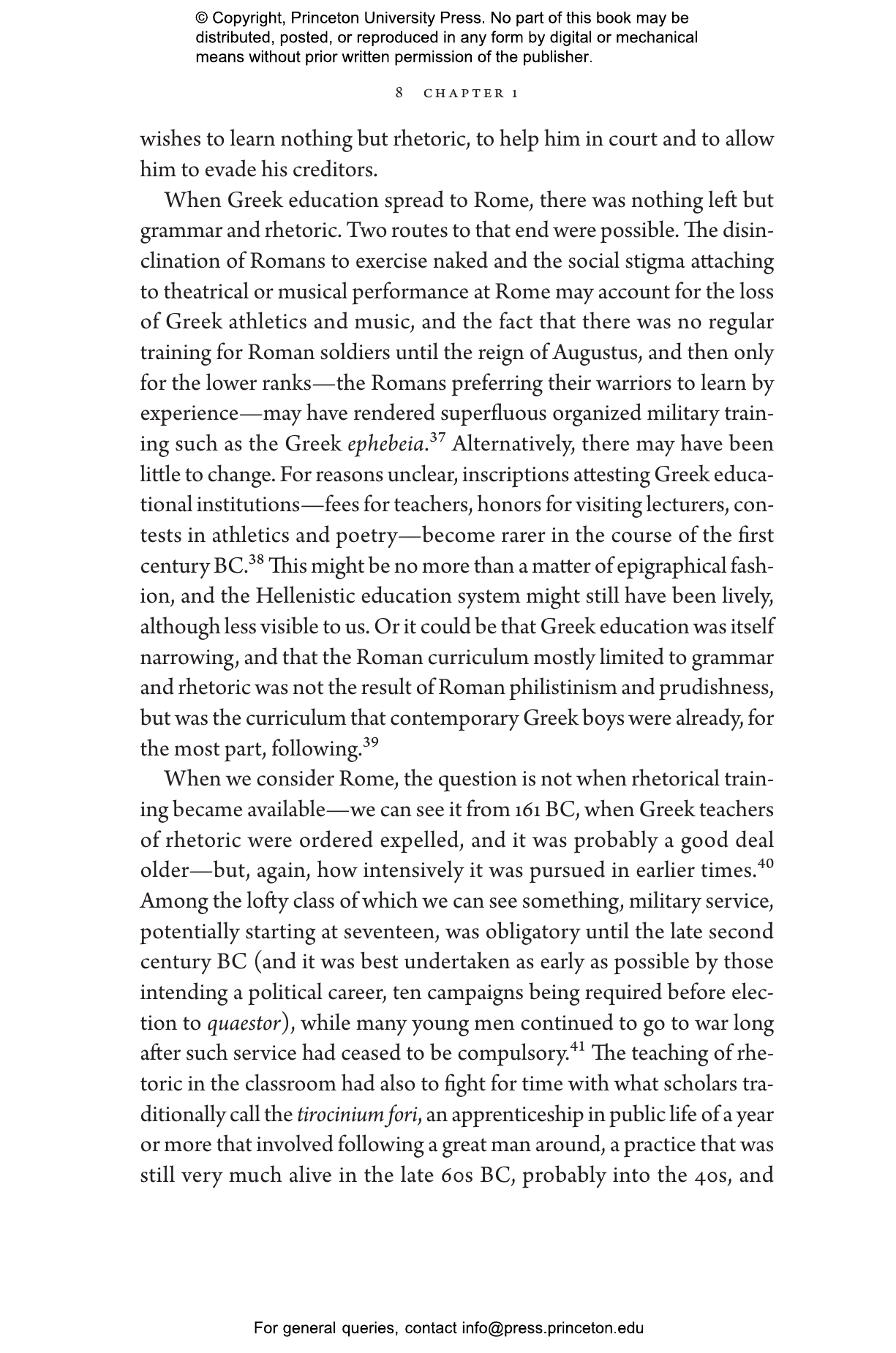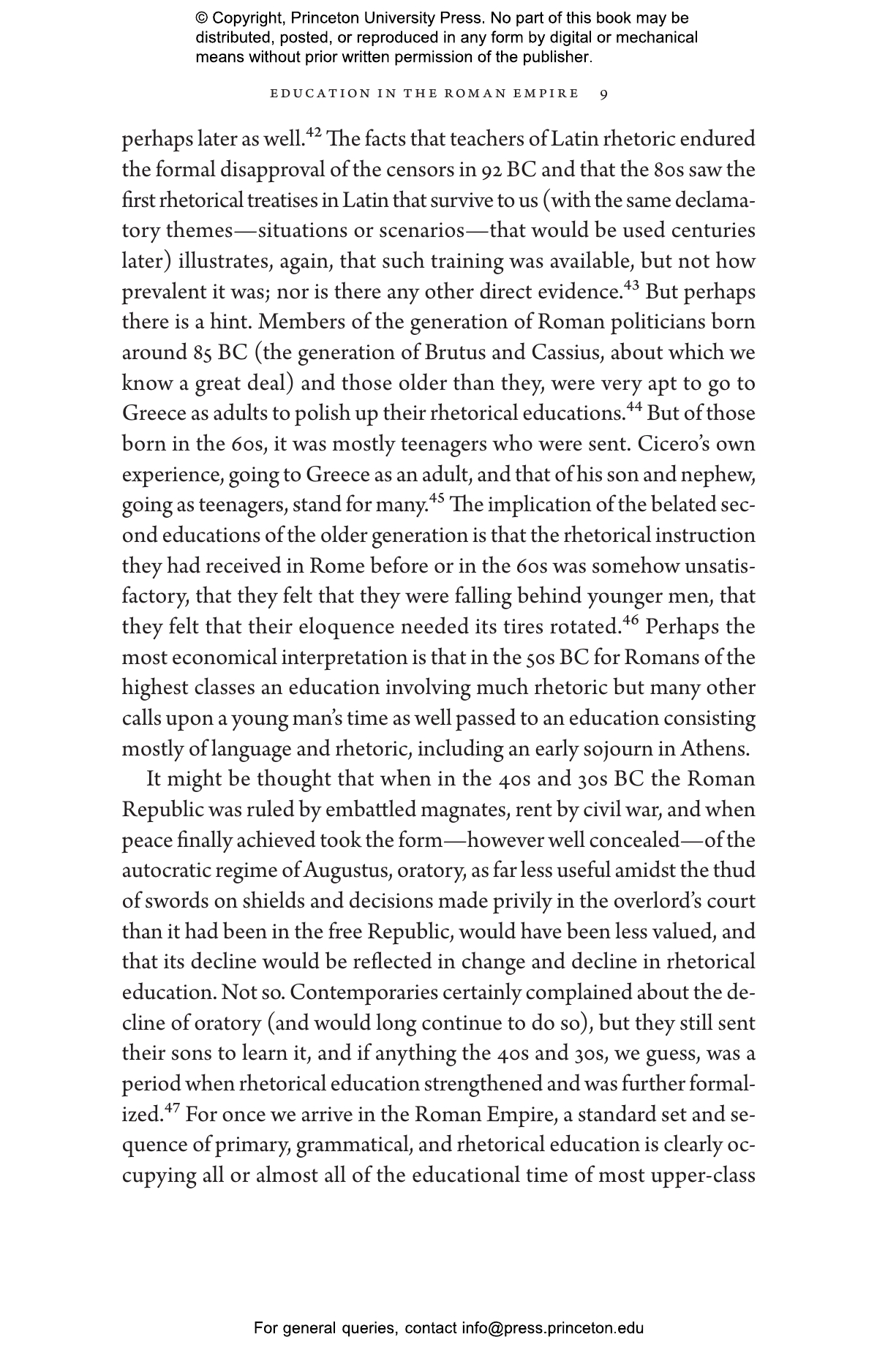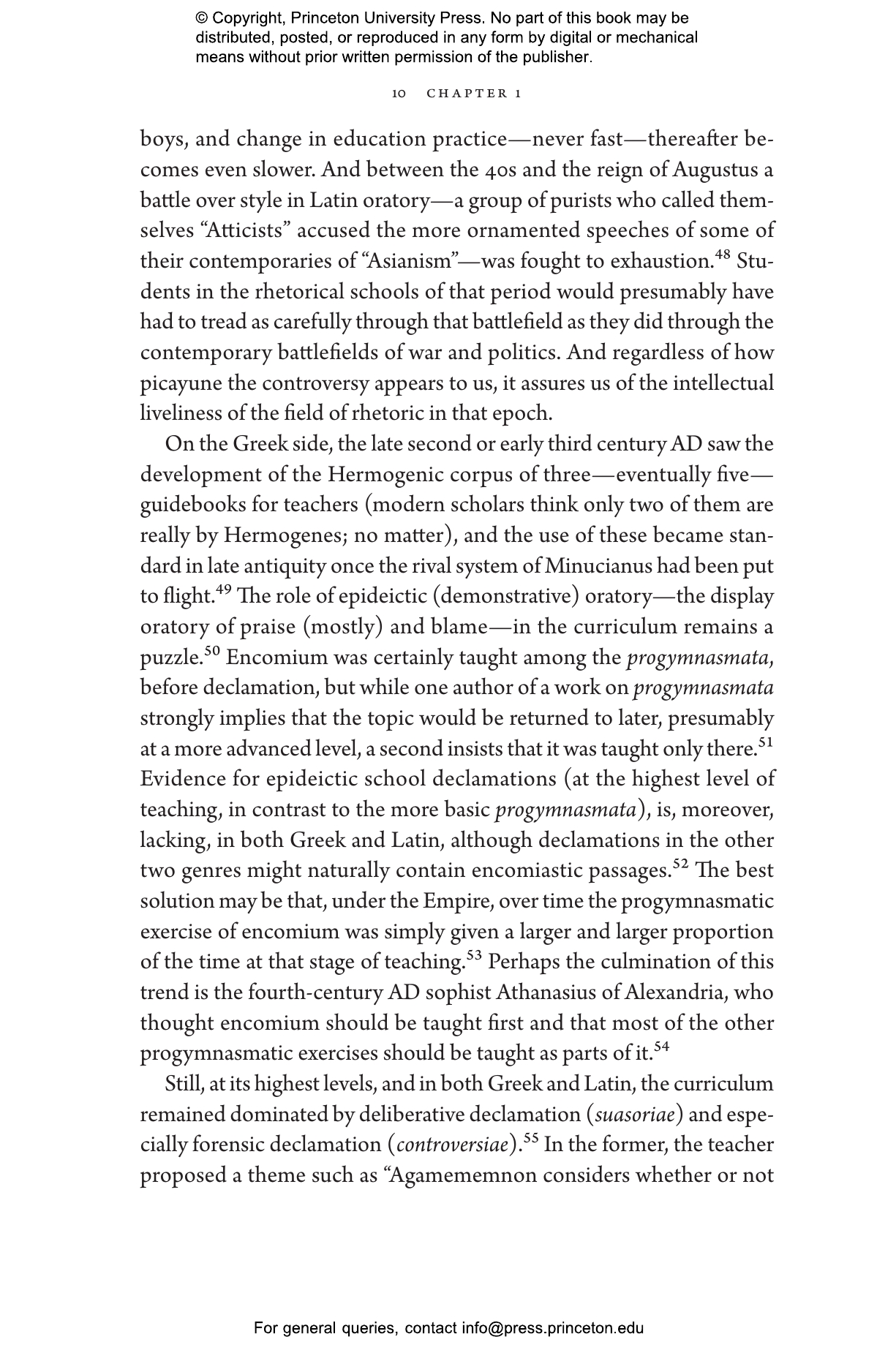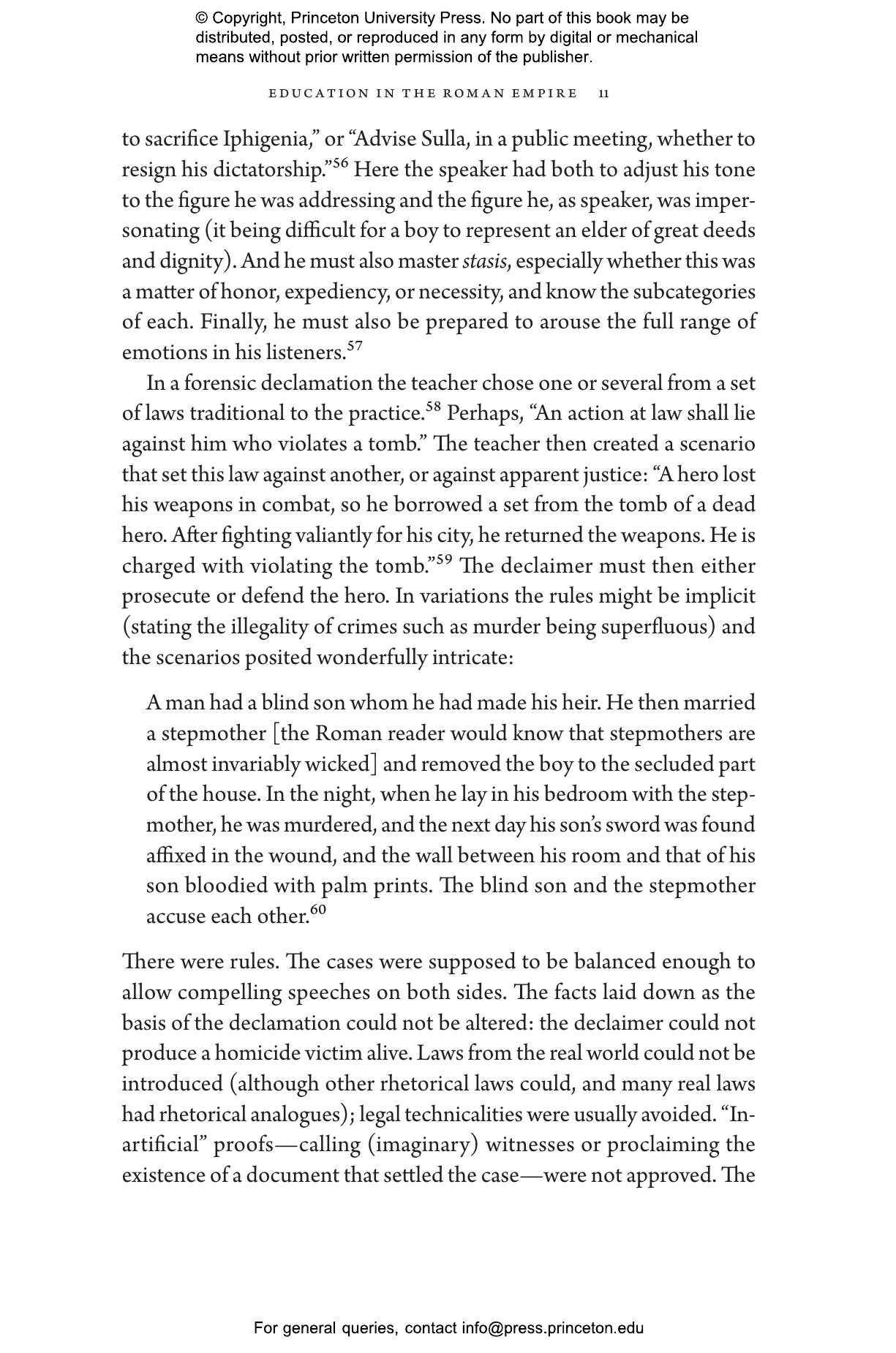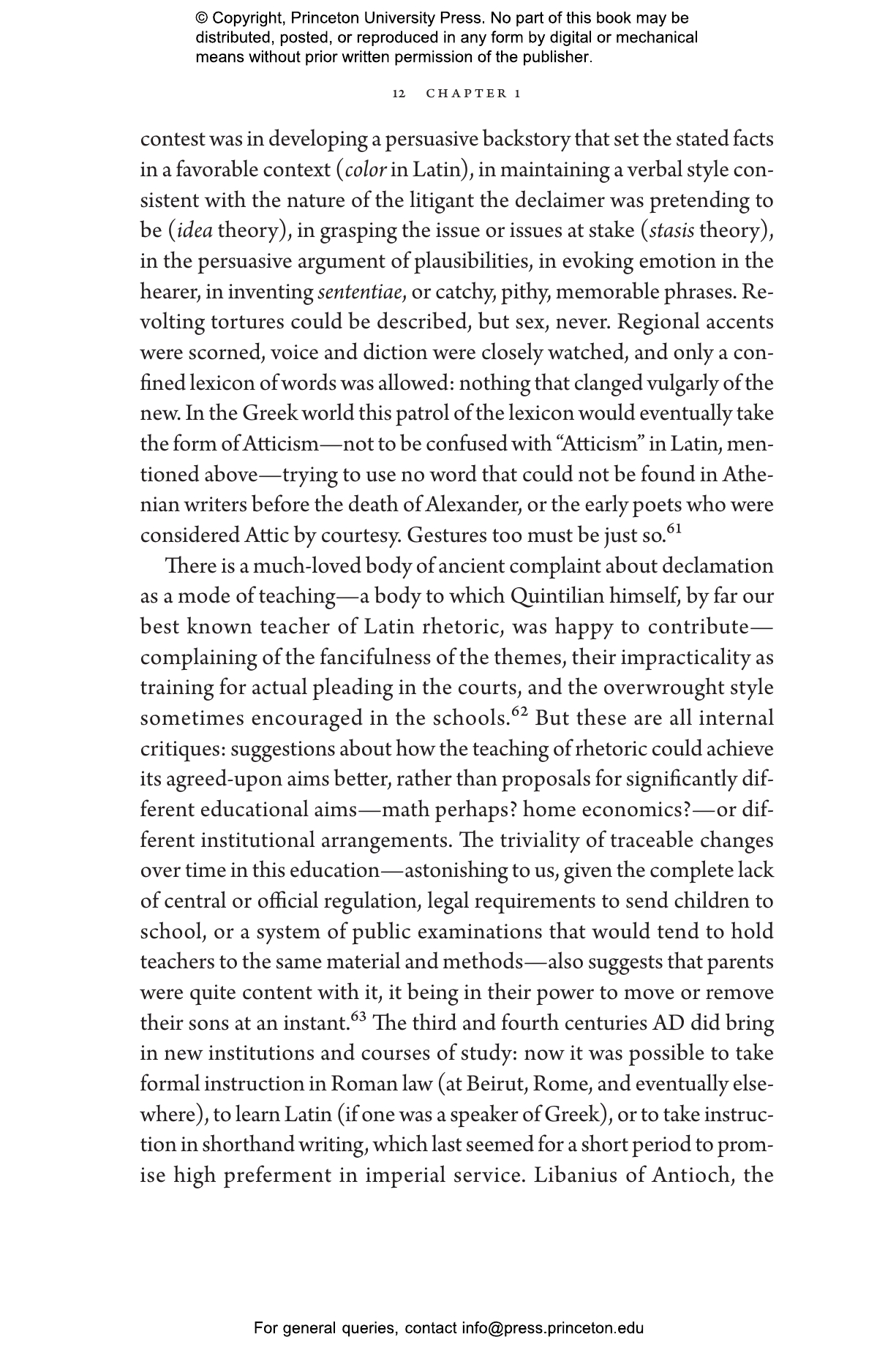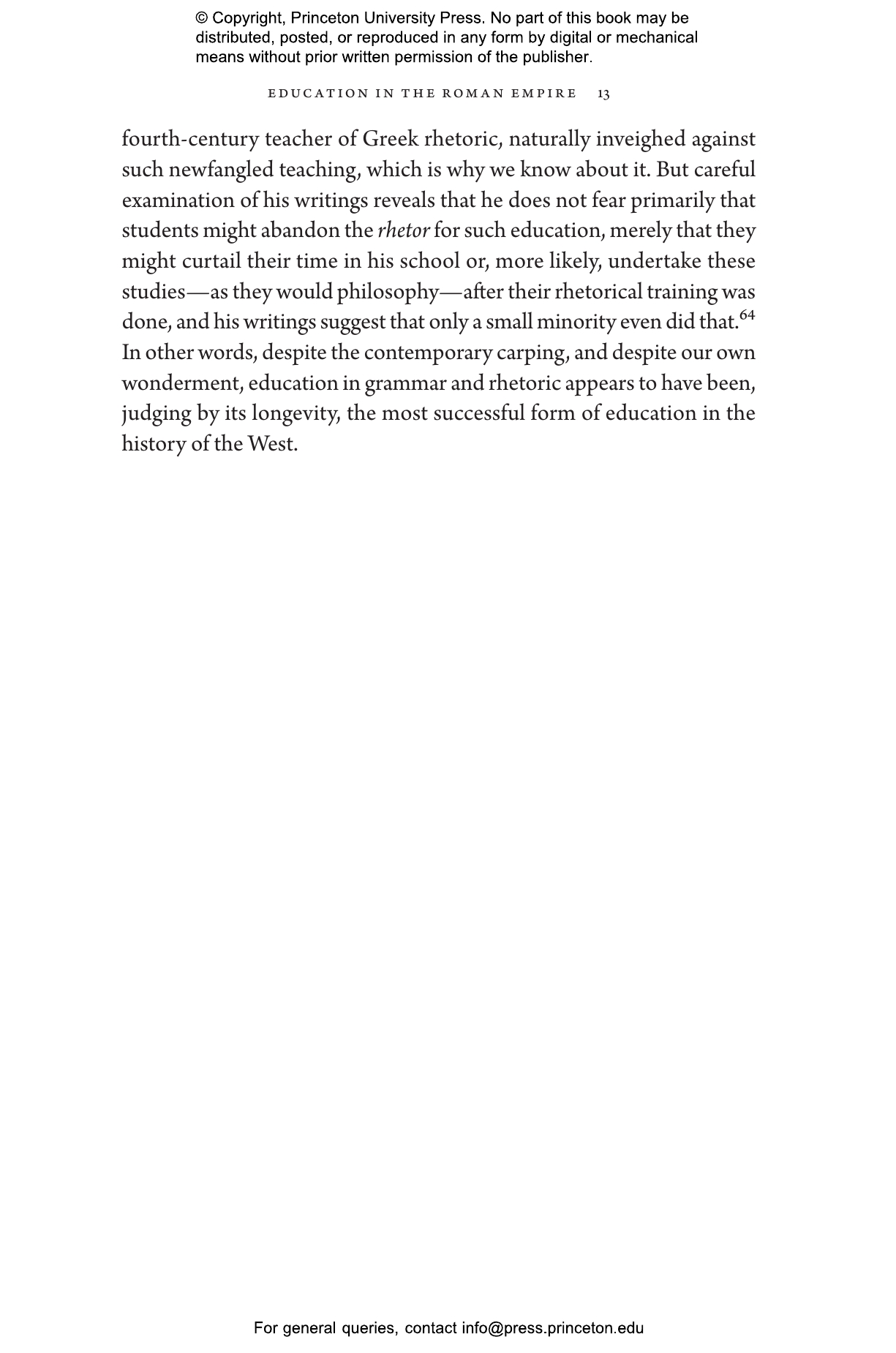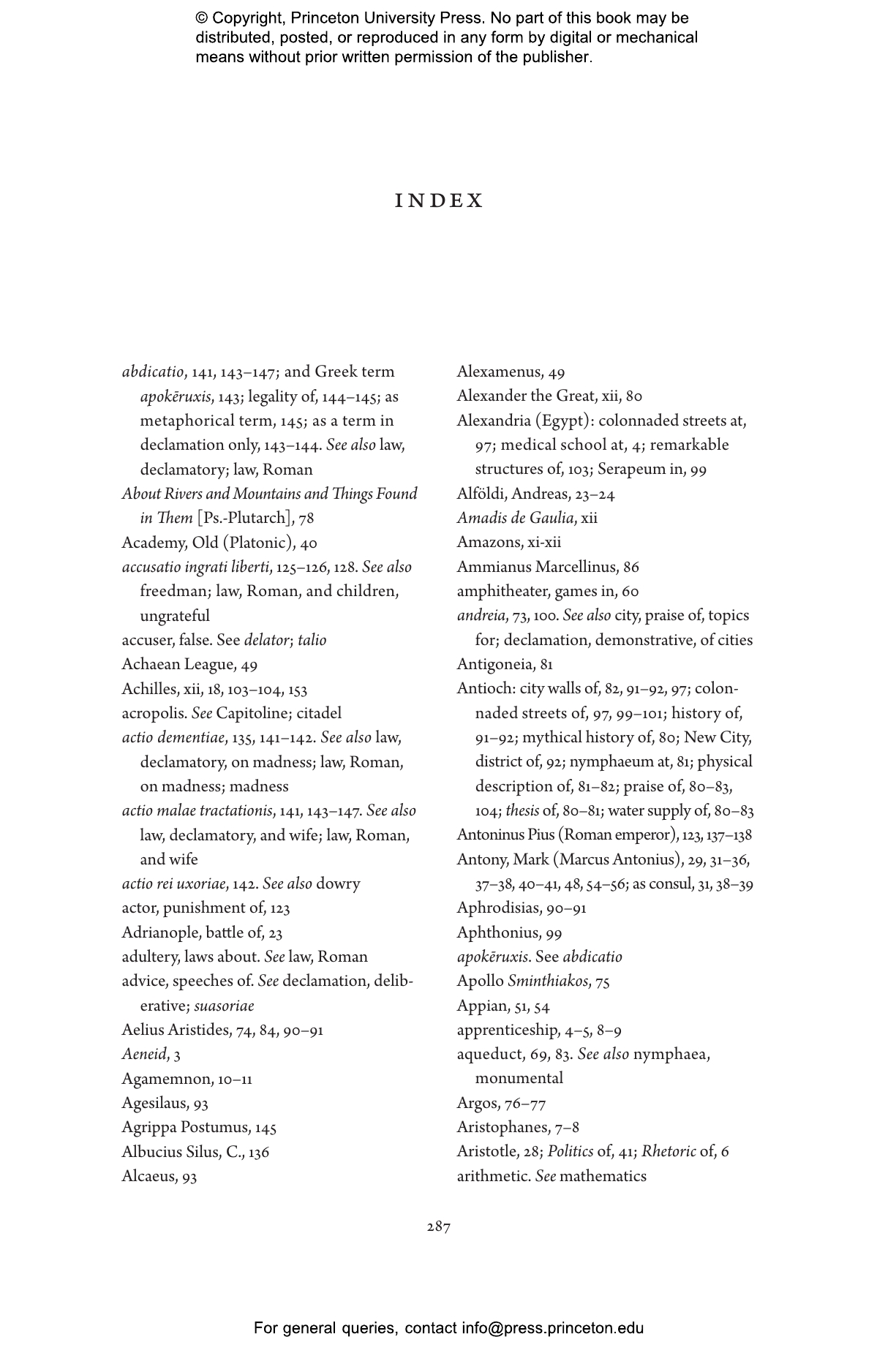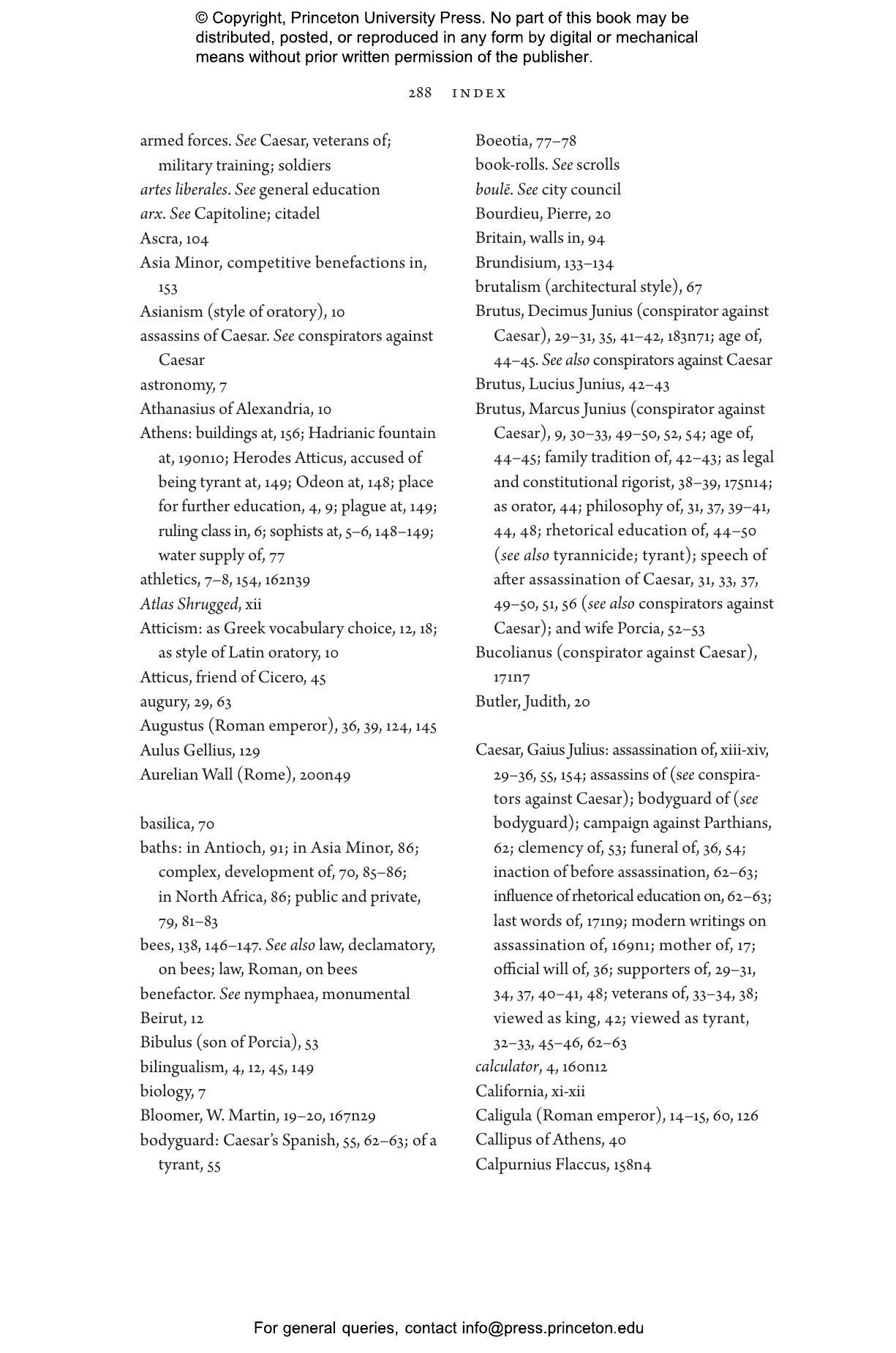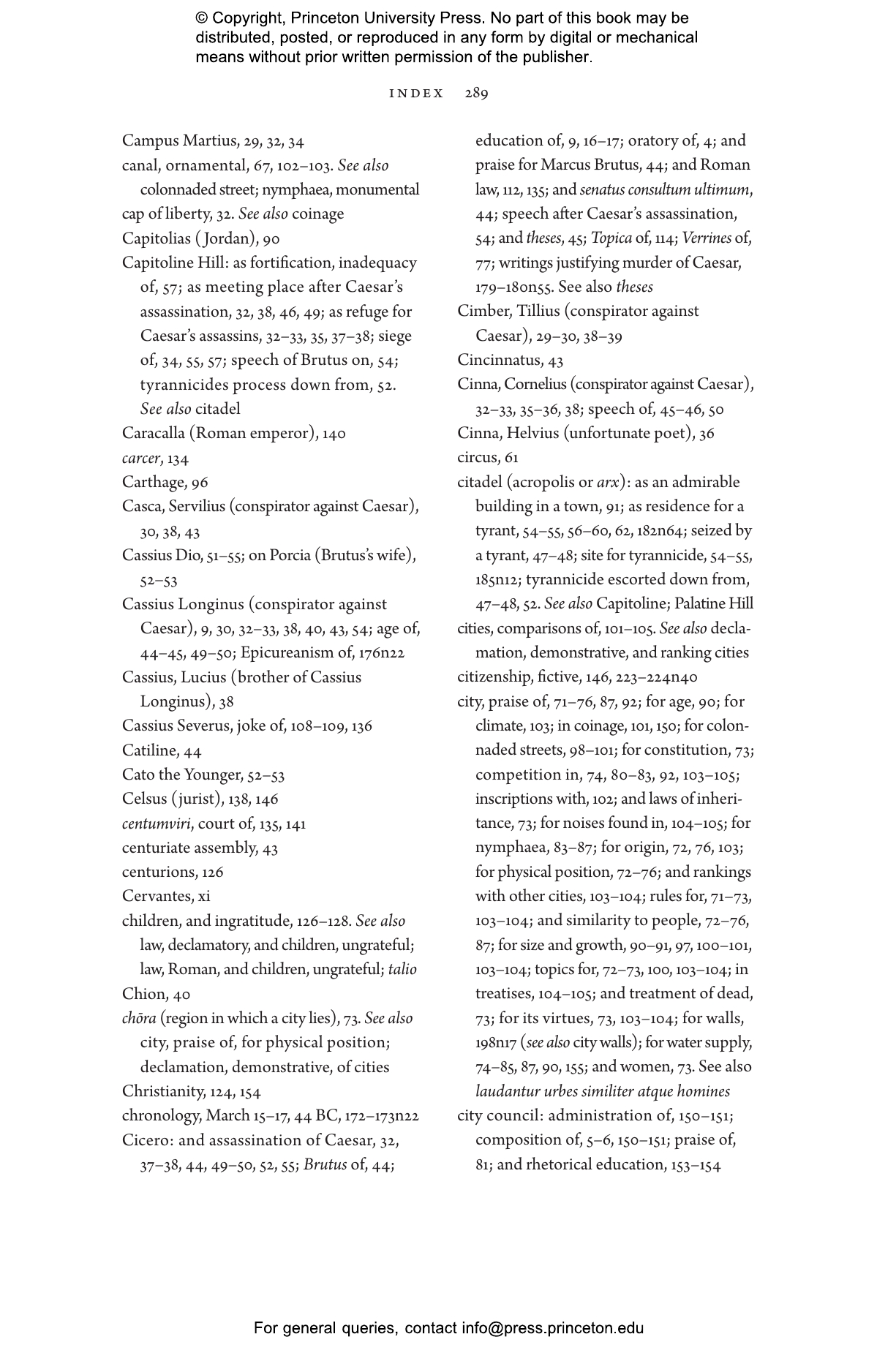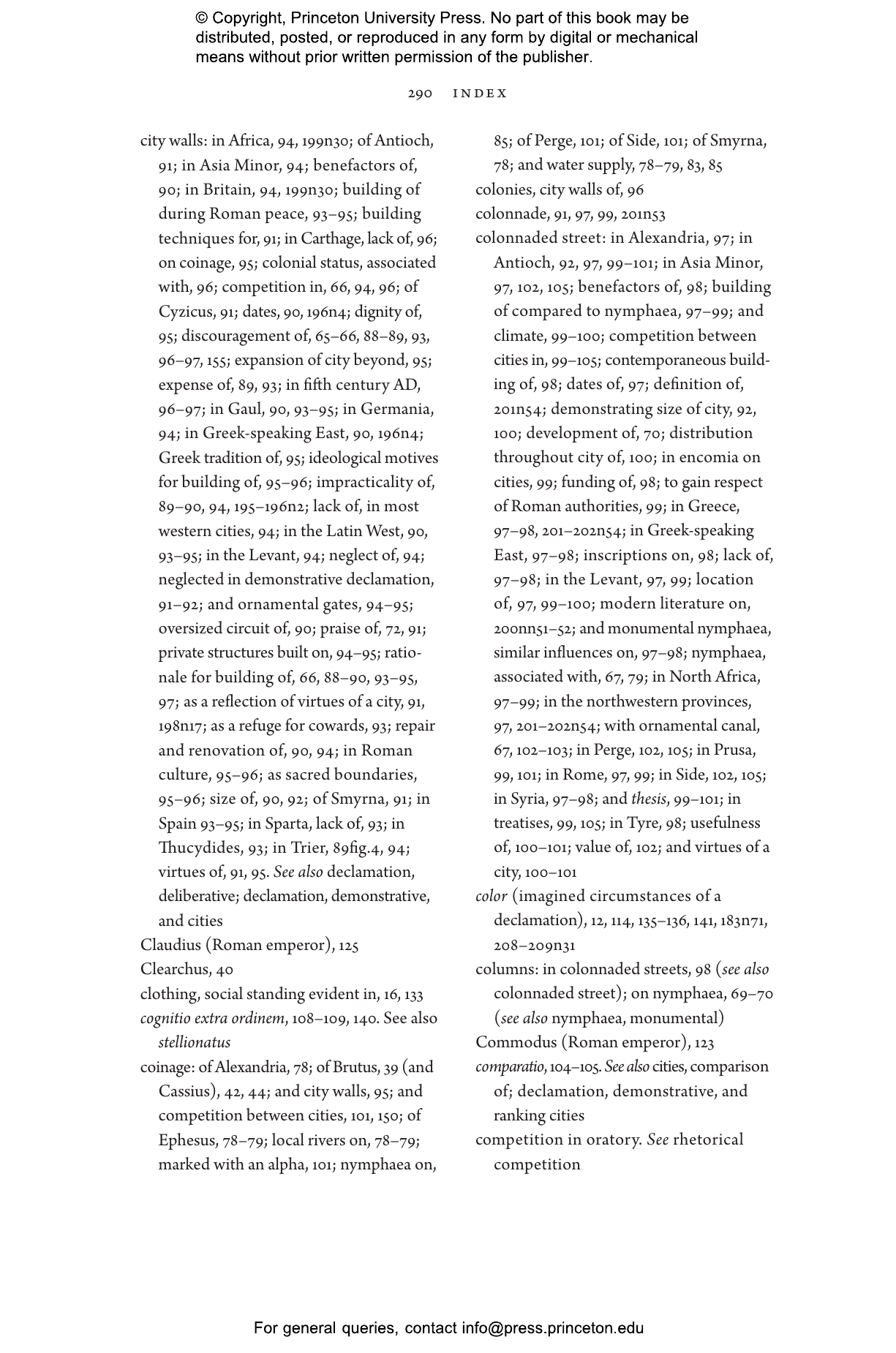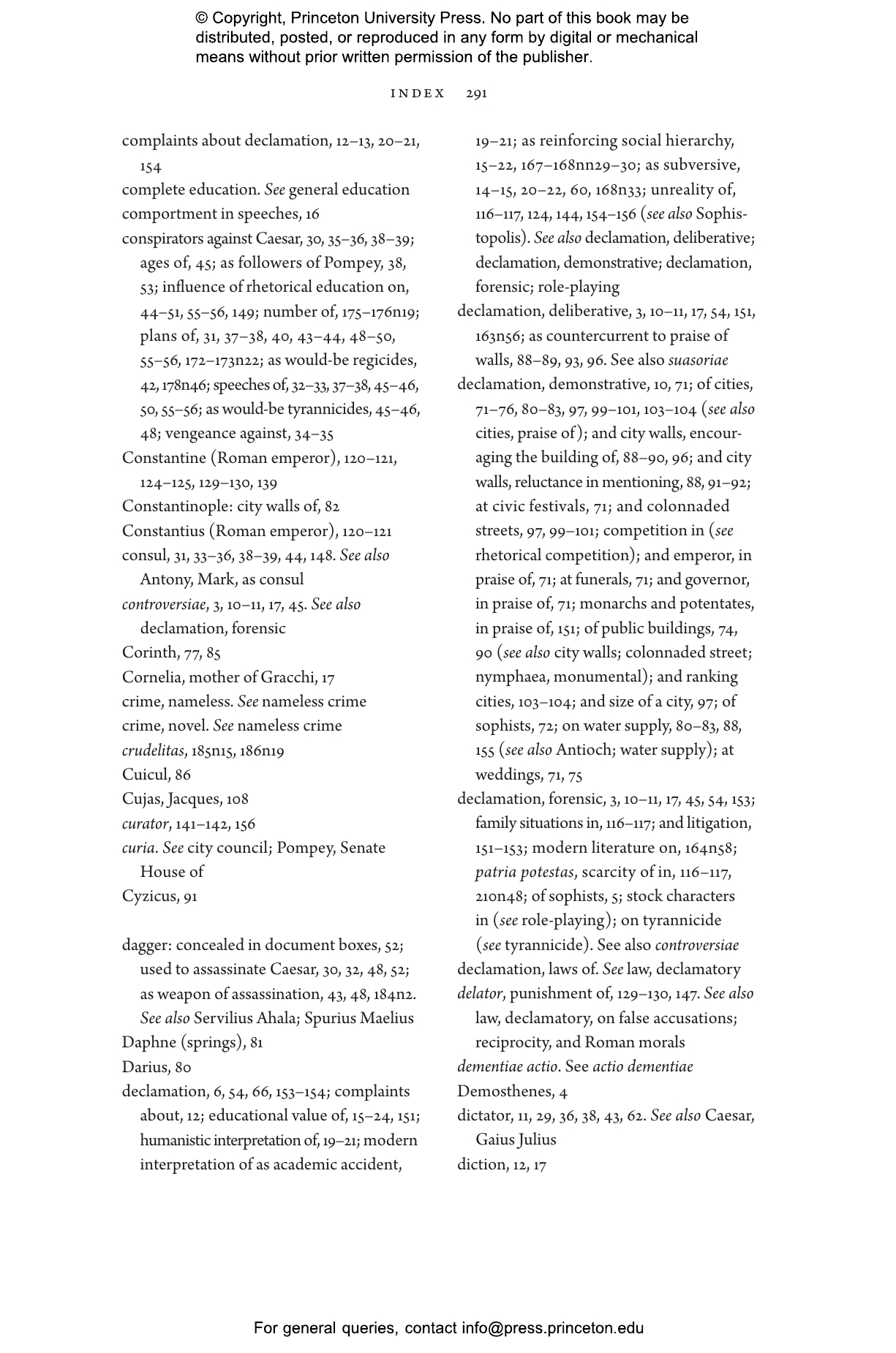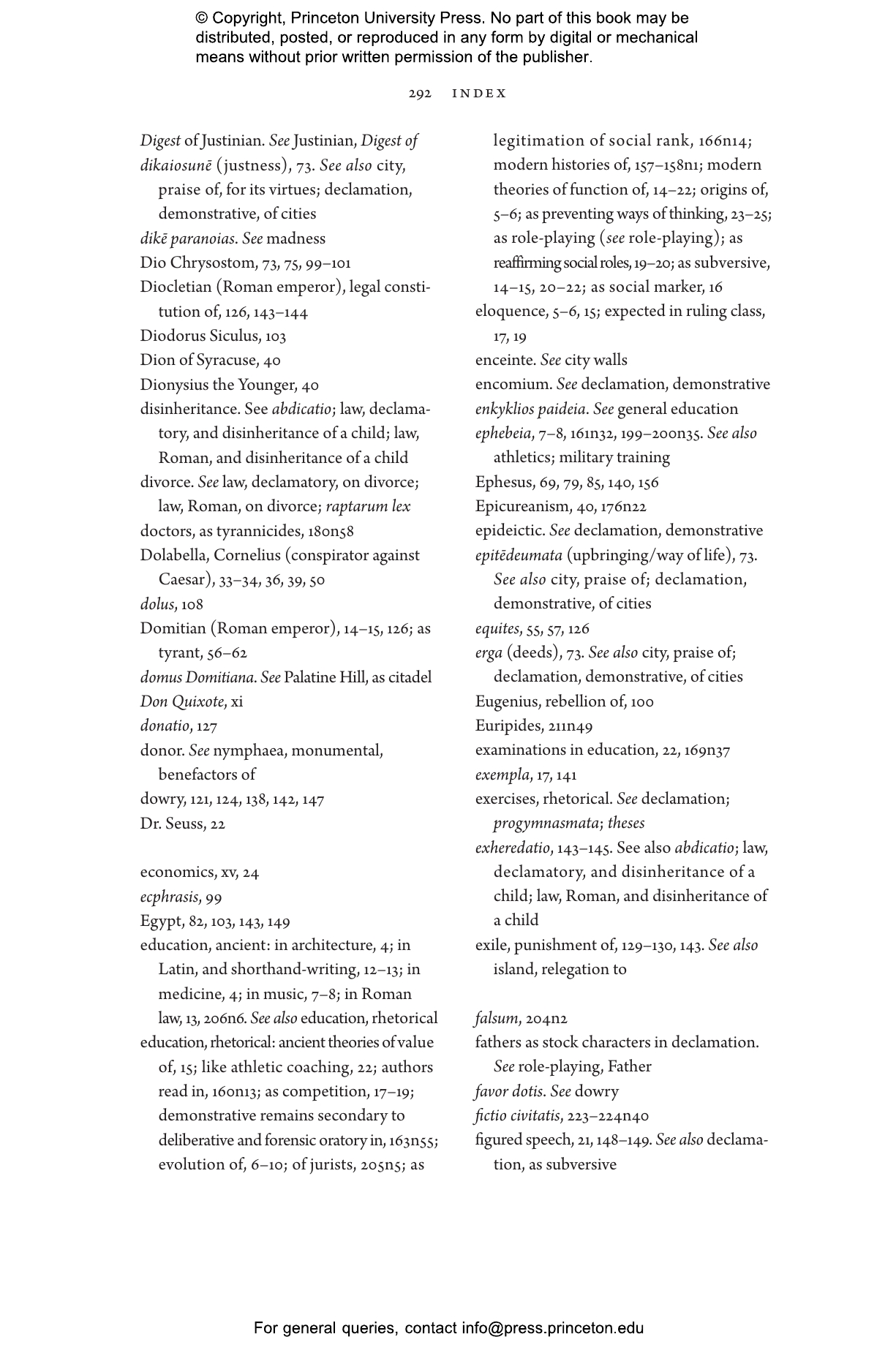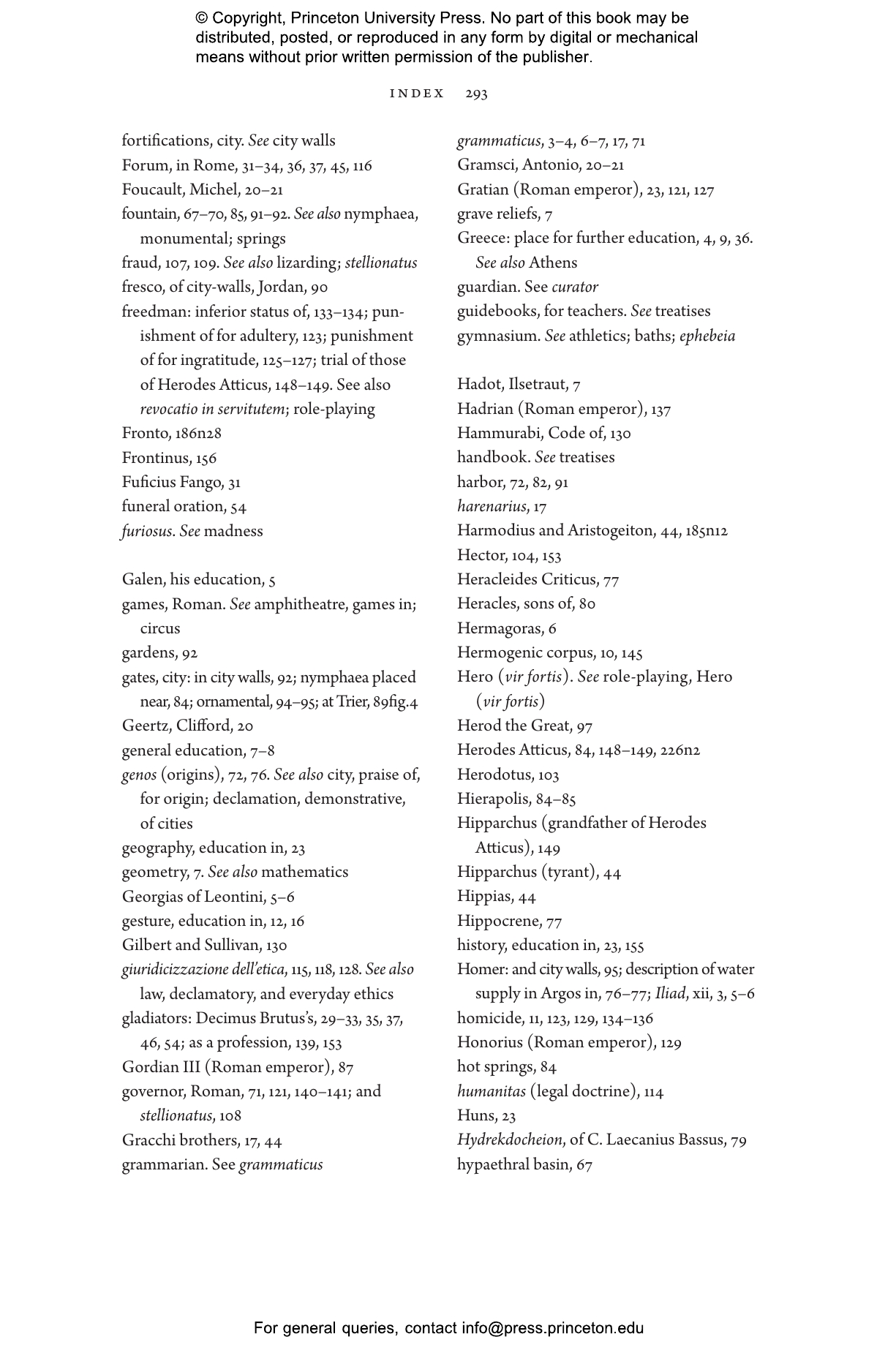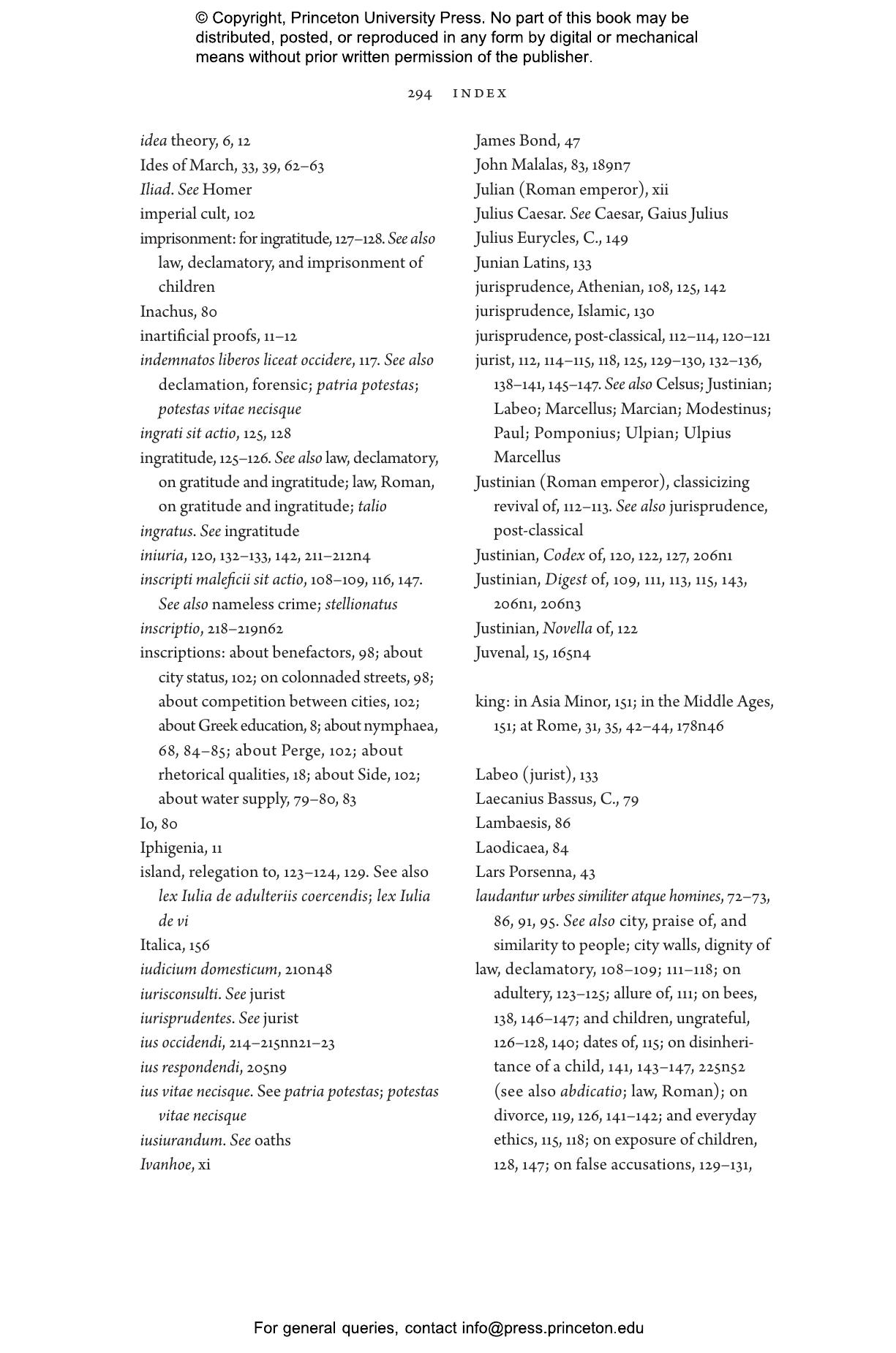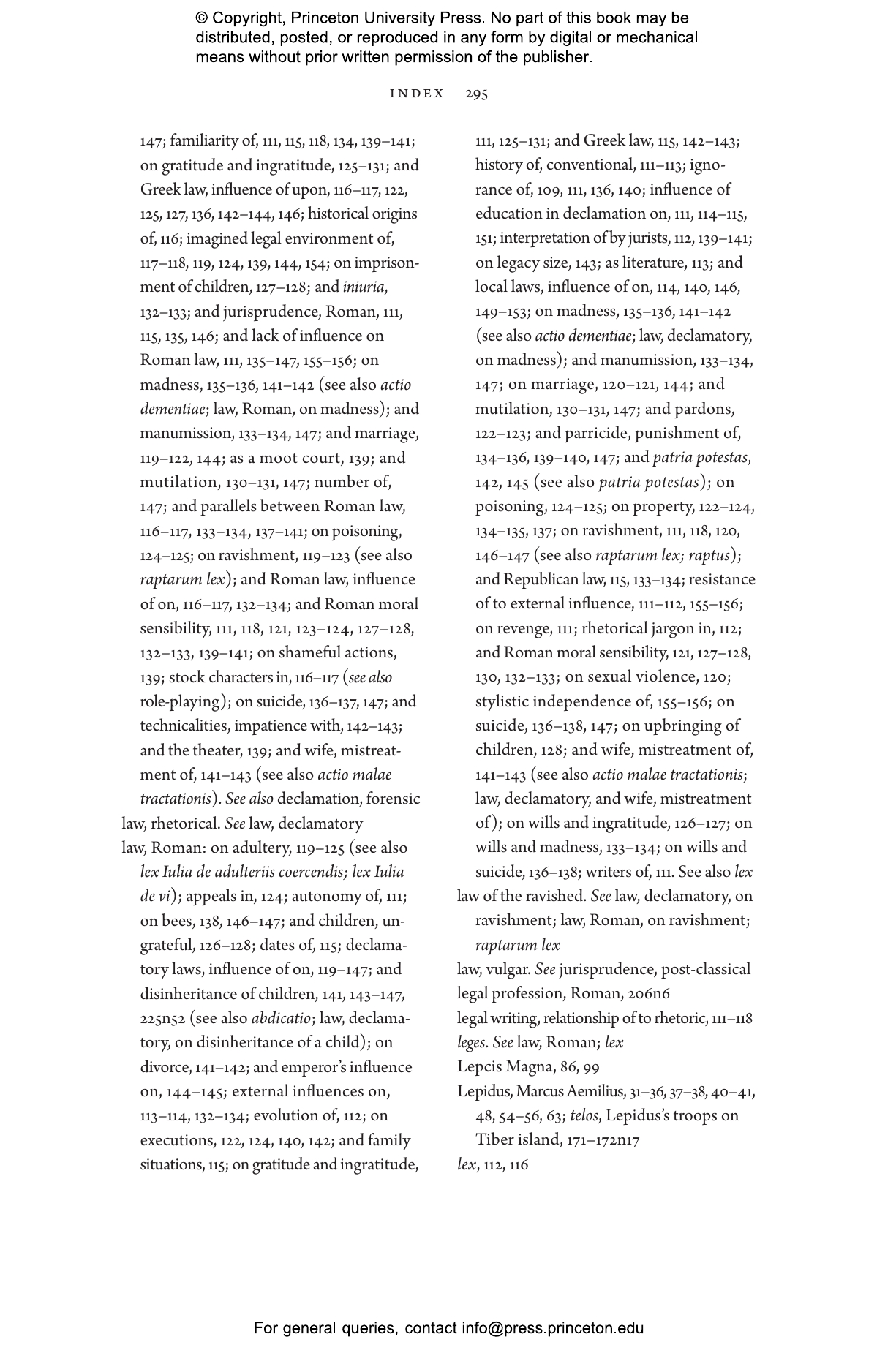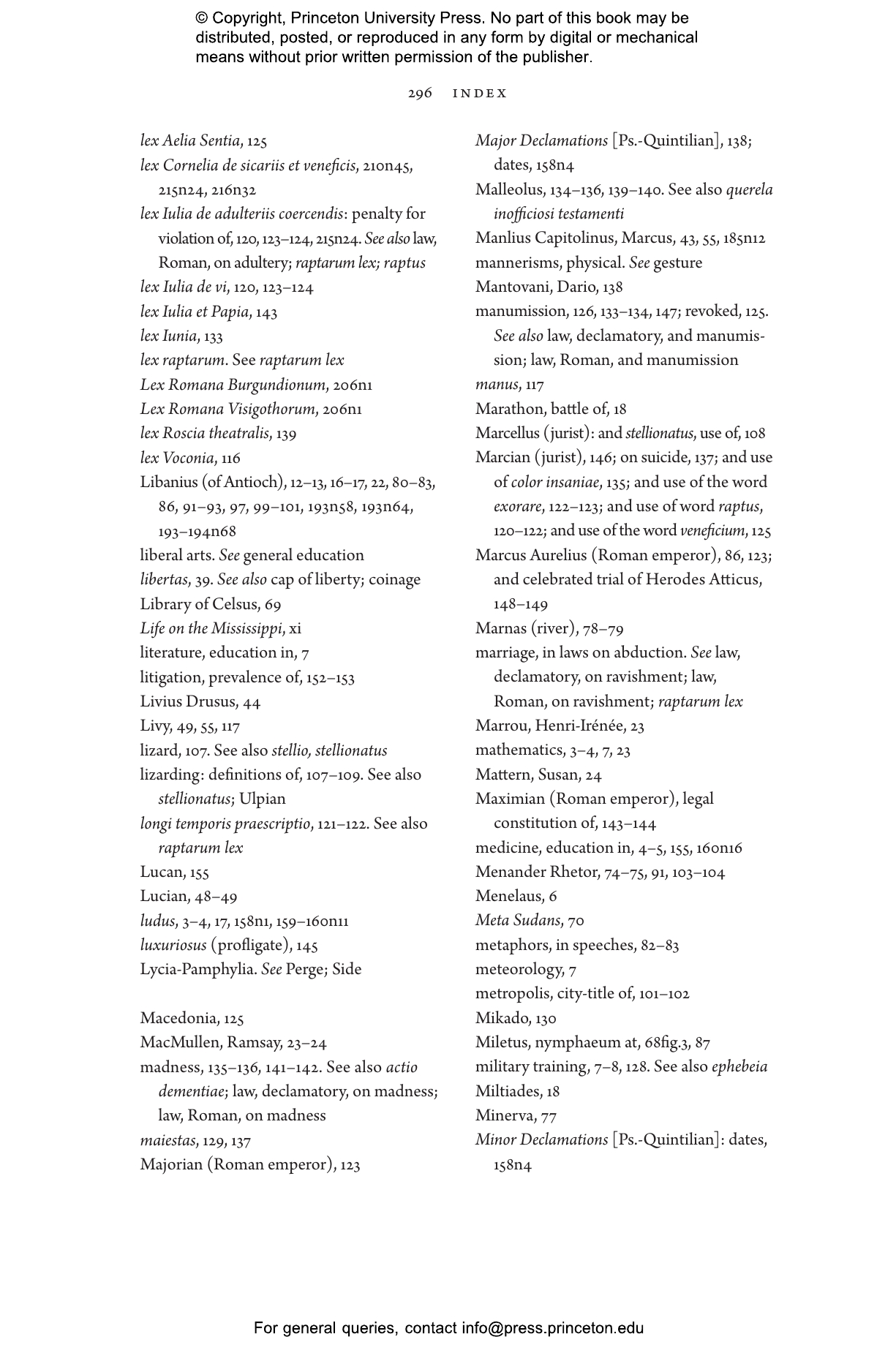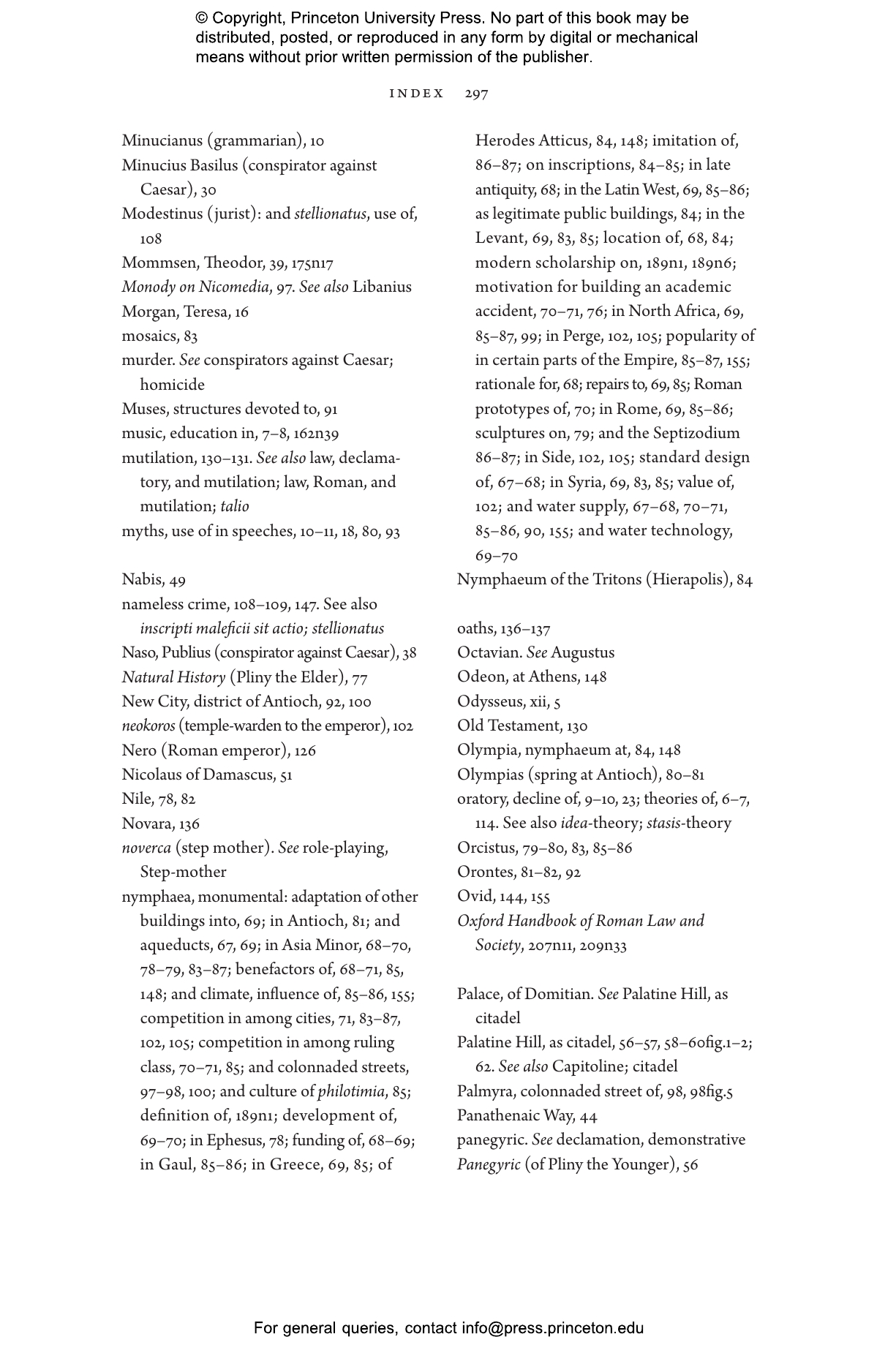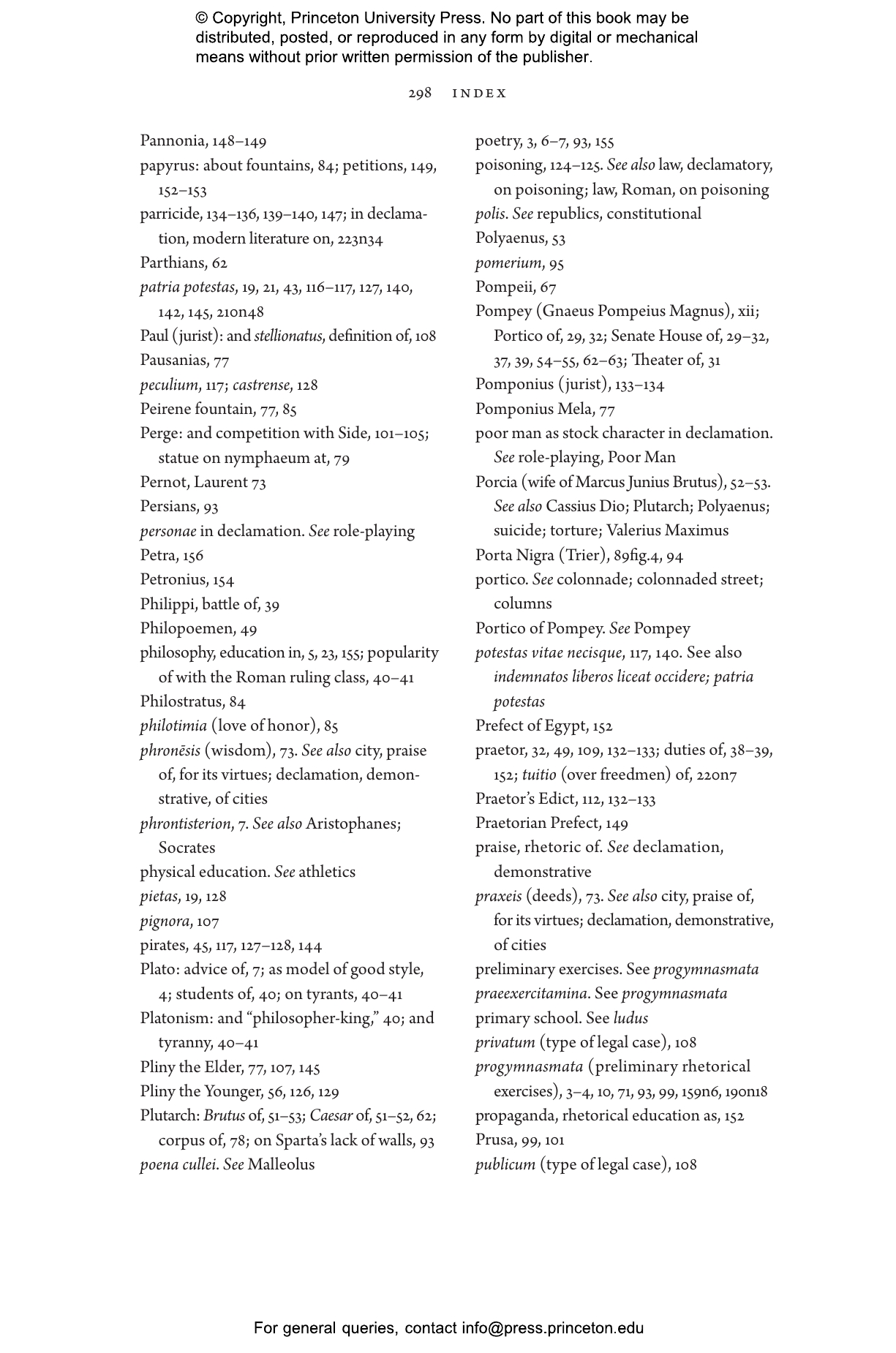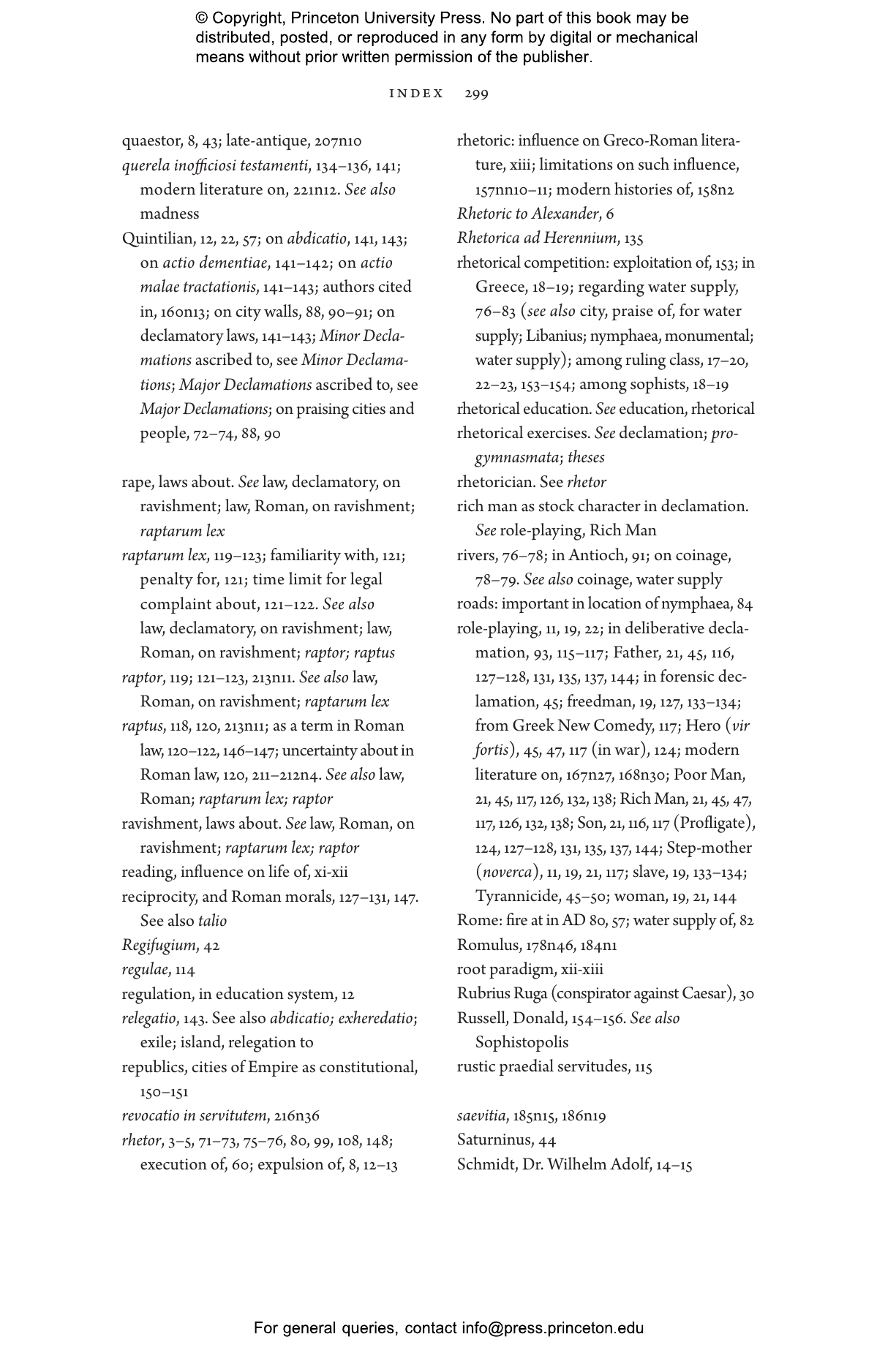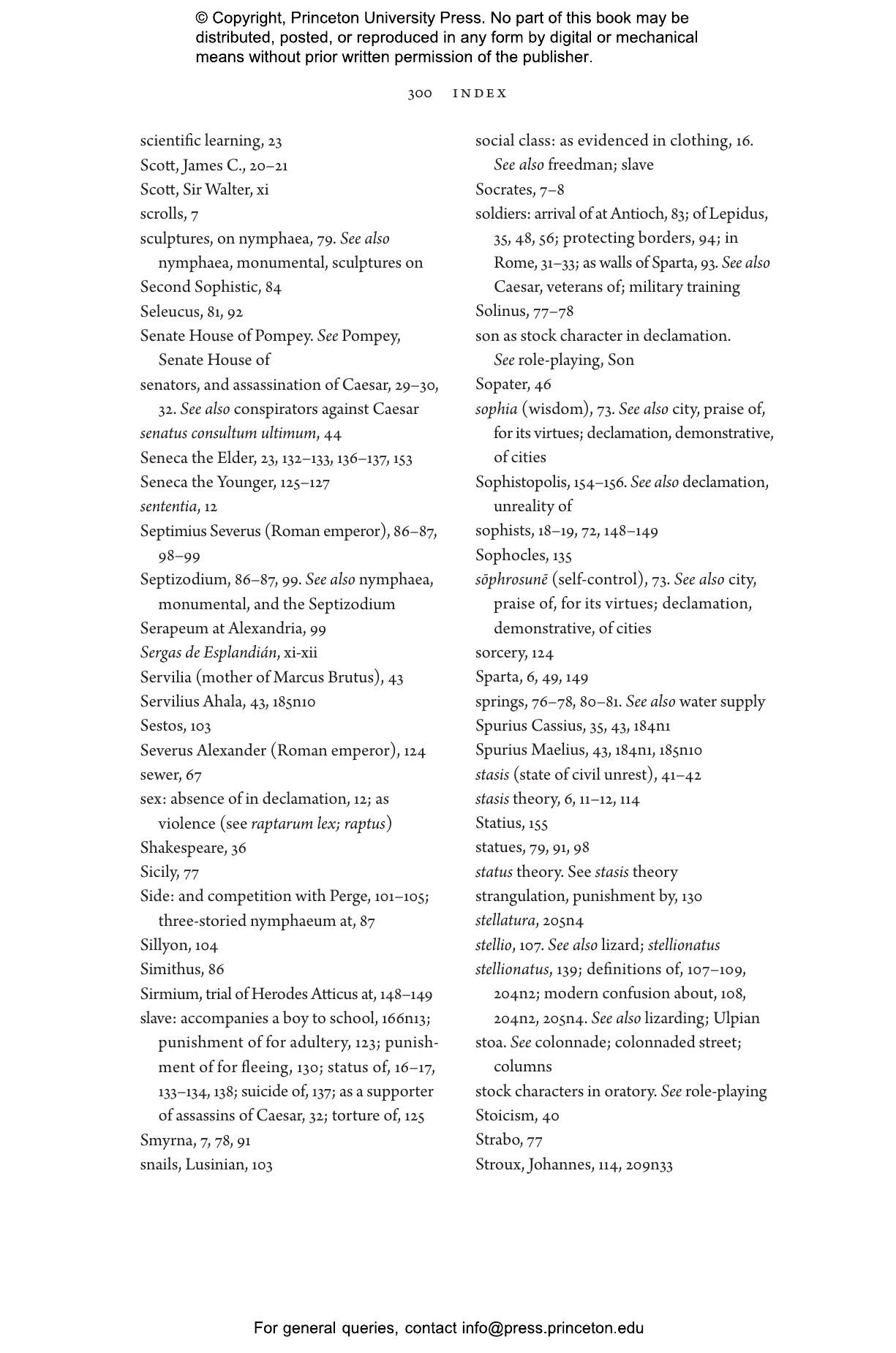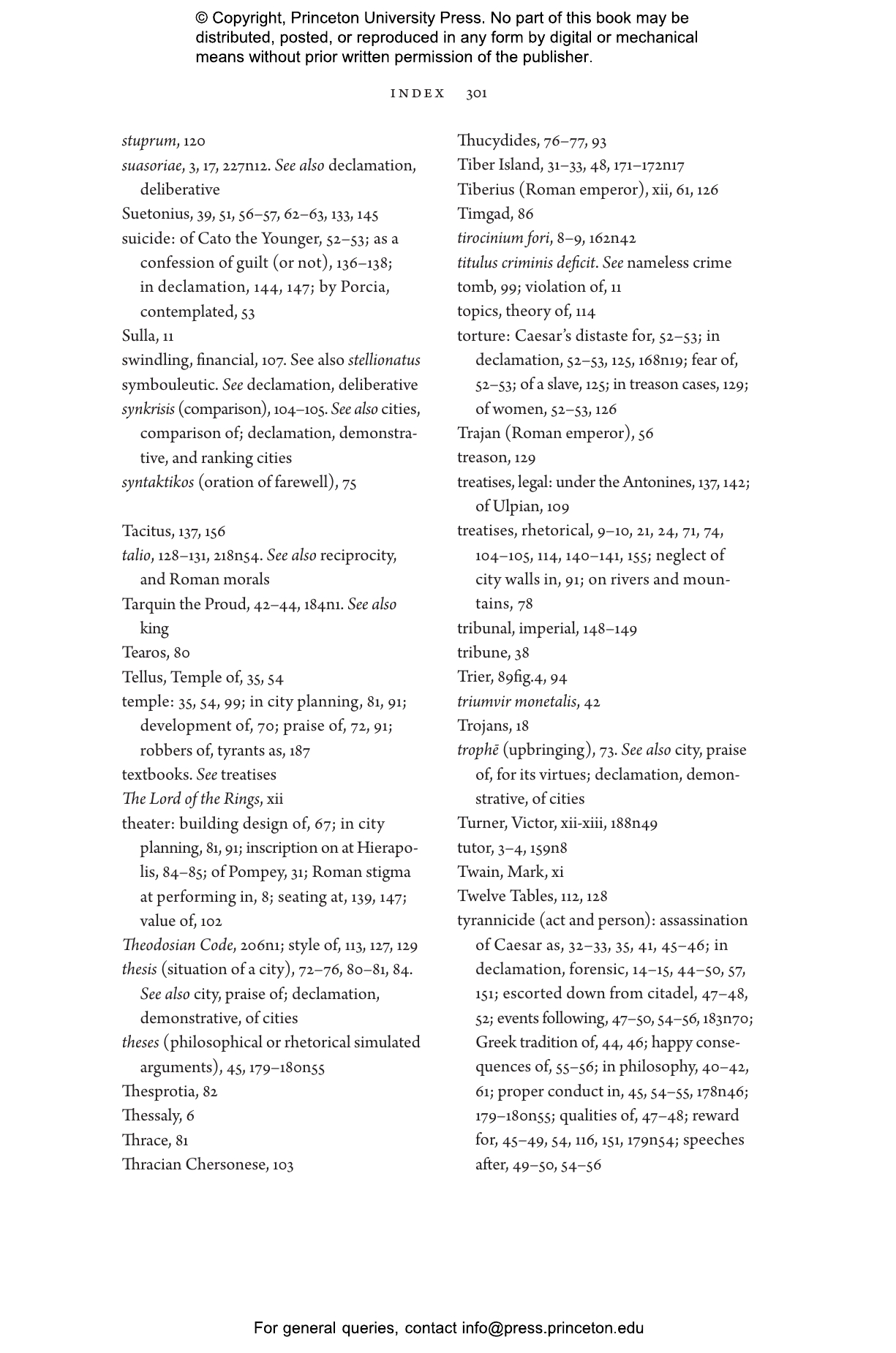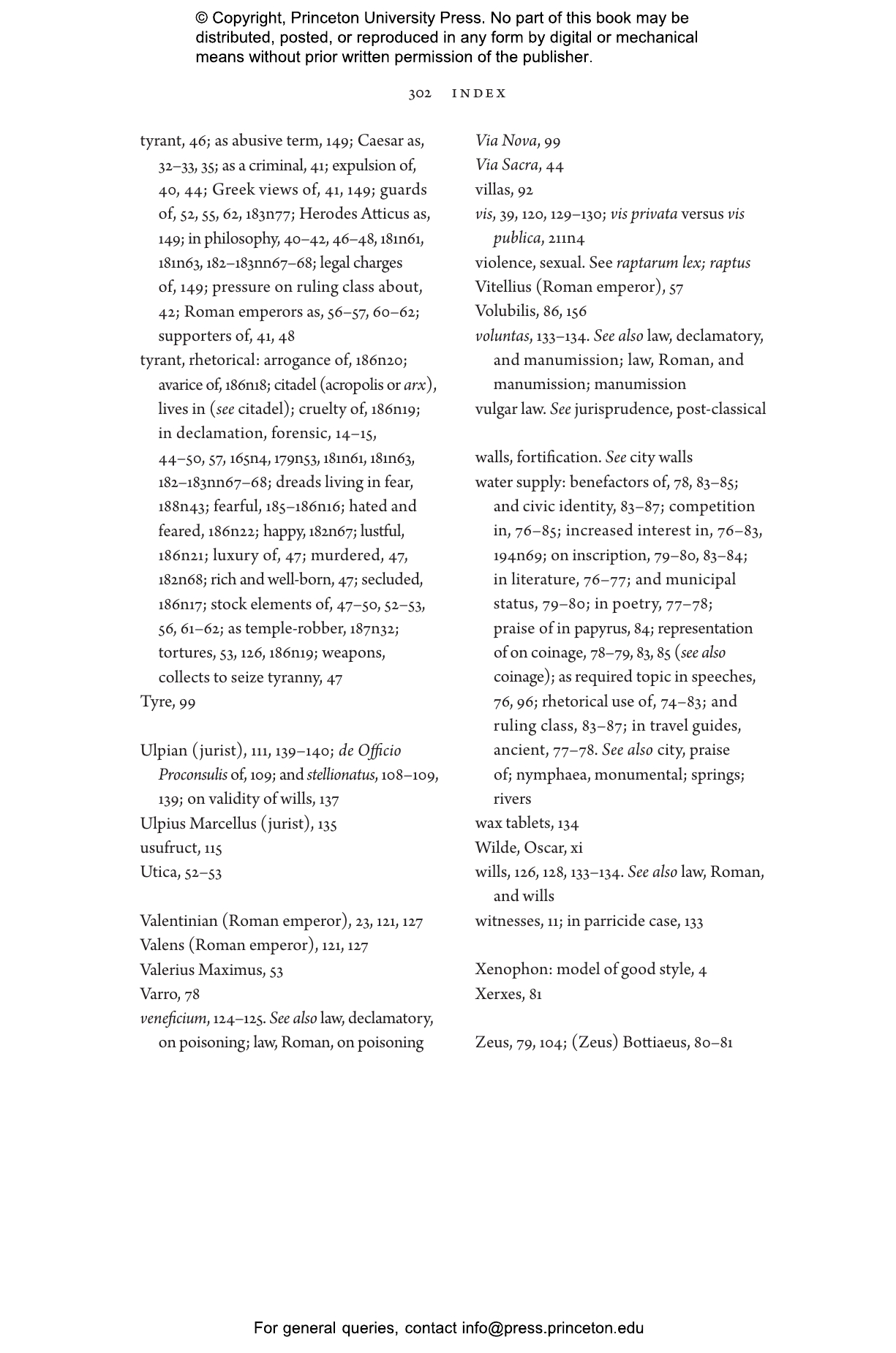The assassins of Julius Caesar cried out that they had killed a tyrant, and days later their colleagues in the Senate proposed rewards for this act of tyrannicide. The killers and their supporters spoke as if they were following a well-known script. They were. Their education was chiefly in rhetoric and as boys they would all have heard and given speeches on a ubiquitous set of themes—including one asserting that “he who kills a tyrant shall receive a reward from the city.” In That Tyrant, Persuasion, J. E. Lendon explores how rhetorical education in the Roman world influenced not only the words of literature but also momentous deeds: the killing of Julius Caesar, what civic buildings and monuments were built, what laws were made, and, ultimately, how the empire itself should be run.
Presenting a new account of Roman rhetorical education and its surprising practical consequences, That Tyrant, Persuasion shows how rhetoric created a grandiose imaginary world for the Roman ruling elite—and how they struggled to force the real world to conform to it. Without rhetorical education, the Roman world would have been unimaginably different.
Awards and Recognition
- A Times Literary Supplement Book of the Year
J. E. Lendon is Professor of History at the University of Virginia. He is the author of Song of Wrath: The Peloponnesian War Begins; Soldiers and Ghosts: A History of Battle in Classical Antiquity; and Empire of Honour: The Art of Government in the Roman World.
"That Tyrant, Persuasion. . . breaks new ground by tracing the influence of rhetoric on public life. . . . drawing on vast erudition, Lendon writes beautifully. He deserves to be widely read."—Brian Vickers, Times Literary Supplement
"A delightful and stimulating book. . . . A crisp and propulsive read."—Catherine Steel, Sehepunkte
"Witty and frank."—Christopher Farnese, New England Classical Review
"A scholarly, balanced, and stimulating study."—R. T. Ingoglia, Choice
“This is an original and significant book with a seemingly effortless combination of knowledge and readability. Arguing that the rhetorical education of the ancient Roman elite had a pervasive influence on their actions, That Tyrant, Persuasion treats readers to thought-provoking accounts of Roman monuments, Roman law, and even the murder of Julius Caesar.”—Henriette van der Blom, University of Birmingham
“Lendon guides us once again into the deepest recesses of the Roman elite mind, revealing a set of springs and gears that caused the real world to tick; but this was a movement that had been flawlessly regulated by the professor of rhetoric. No wonder, then, that a flesh-and-blood dictator, Julius Caesar, was handled just like all the fantastical tyrants whom Brutus and his companions had spent their school days dutifully and heroically eliminating. This book is a must-read for all who want to understand why a Roman aristocrat thought, said, and, ultimately, did what he did.”—Michael Peachin, New York University


